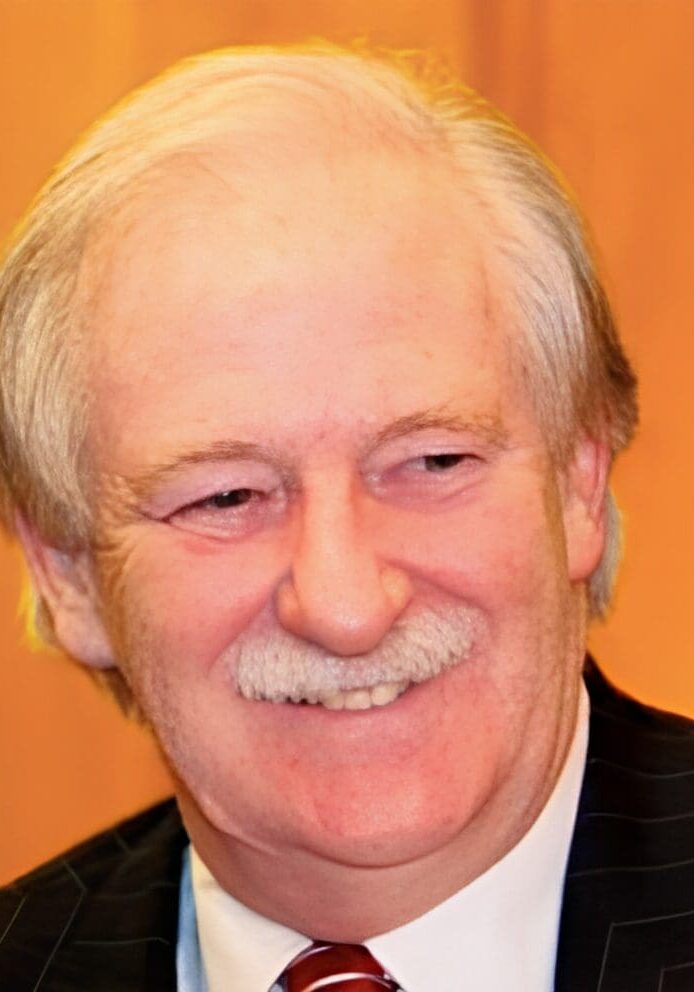American Political Profiles
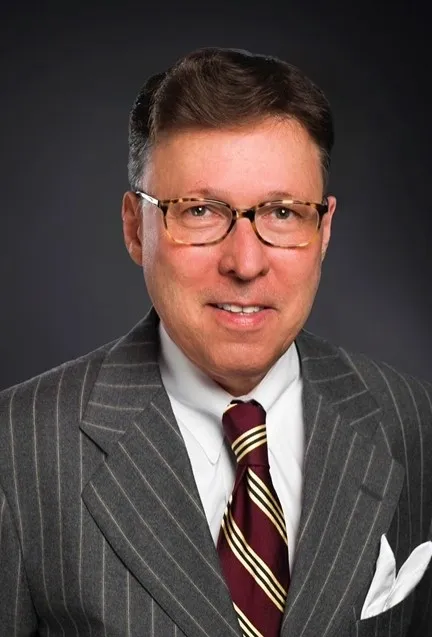
Derek Bryson Park Investment Banker and Public Servant
Derek Bryson Park is an esteemed public servant with a distinguished background in Federal, State, and Local governance. He is also recognized as a highly accomplished American Investment Portfolio Manager and Banker.
Within the securities industry, Dr. Park held the position of Managing Director in the Fixed Income/Structured Finance Division at Lehman Brothers. Prior to this role, he served as President of Mahler & Emerson Inc., an affiliate of Brean Murray, Carret & Co., with J.P. Morgan serving as their clearing partner. Additionally, Park has held prestigious positions such as Managing Director of Rafferty Holdings, President of Cohane Rafferty Capital Markets, and Managing Director of the Potomac Funds, later renamed Direxion Funds, a leading provider of leveraged index and alternative-class mutual fund products. Currently, he serves as Principal at Wilmington Capital Securities, LLC, with the Royal Bank of Canada ("RBC") acting as their clearing partner.
In 1999, Dr. Park had the honor of applying his expertise to the public sector when he was appointed Director of the Federal Home Loan Bank by President Bill Clinton, a position he continued to hold during the George W. Bush presidency. From 2000 to 2010, he was appointed Acting Chairman of the New York Industrial Development Agency (IDA), which stands as the nation's second-largest issuer of municipal debt following the State of California. Park's significant contributions extended to his role as Director of the New York City Economic Development Corporation (EDC) from 2000 to 2005. During this time, he played a crucial role in numerous transformative projects that shaped the landscape of New York City, including the design and construction of baseball stadiums for both the Yankees and the Mets, as well as the historic renovation of Times Square, the largest redevelopment project in U.S. history.
In 2003, Dr. Park's exceptional achievements in both the private and public sectors led to his appointment as Vice Chairman at Southwest Security, a bank holding company regulated by the Federal Reserve Board, overseeing United Mississippi Bank and other entities. Additionally, he served as a Director on the First Franklin Bank Product Innovation Board of Directors for First Franklin Financial Corp in San Jose, California.
Renowned for his expertise and integrity within the U.S. financial industry, Park has served as an arbitrator for prominent organizations including the National Association of Securities Dealers (NASD), now known as FINRA, the New York Stock Exchange, and The Chicago Board of Trade.
Dr. Park's impressive academic background includes the completion of his Ph.D. from the New York University Graduate School of Arts and Science, specializing in International and Developmental Administration with a focus on public finance, in 1982. Furthermore, he successfully completed the International Housing Finance Program at The Wharton Real Estate Center, University of Pennsylvania in 2001.
Derek Bryson Park's extensive experience, exceptional leadership, and unwavering commitment to excellence have solidified his standing as a highly respected figure in both the financial and public sectors. His contributions have played a pivotal role in shaping the industry and fostering positive change within communities.
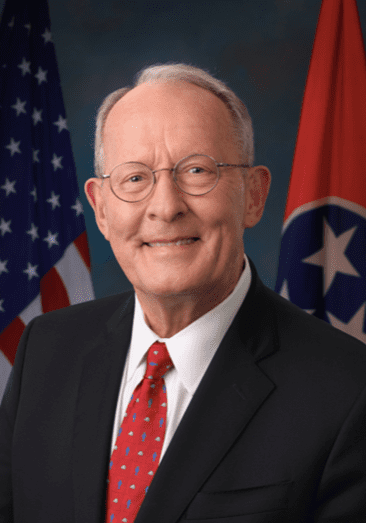
Senator Lamar Alexander (R-TN) Former U.S. Secretary of Education, Governor of Tennessee, and President of the University of Tennessee
Lamar Alexander is a renowned American politician and public servant, known for his contributions in various roles throughout his career. Born on July 3, 1940, in Maryville, Tennessee, Alexander began his journey in public service as the Governor of Tennessee, serving from 1979 to 1987.
During his time as governor, Alexander dedicated his efforts to improving education, economic development, and environmental conservation. He implemented significant reforms in the education system, focusing on increasing funding and accountability, as well as promoting teacher excellence. His commitment to education led to Tennessee being recognized as one of the nation's top states for education improvement.
After his successful tenure as governor, Alexander went on to serve as the President of the University of Tennessee from 1988 to 1991. In this role, he focused on elevating the university's academic reputation, expanding research opportunities, and fostering collaboration between academia and industry.
In 1991, Alexander was appointed as the United States Secretary of Education under President George W. Bush. During his tenure, he championed education reform efforts, including the promotion of school choice and the implementation of national academic standards. His work in this role earned him recognition and respect as a leading voice in education policy.
Following his time as Secretary of Education, Alexander turned his attention to the legislative branch, serving as a United States Senator from Tennessee from 2003 to 2021. During his tenure in the Senate, he focused on various issues, including healthcare, energy, and education. He was known for his ability to work across party lines, seeking bipartisan solutions to address the nation's challenges.
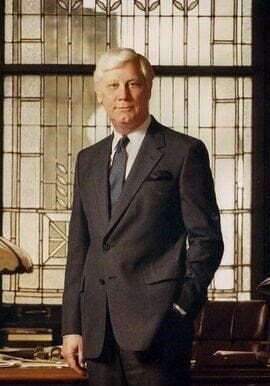
Bill Allain (D-MS)
Governor Bill Allain, born on February 14, 1928, in Washington County, Mississippi, was a notable figure in American politics, renowned for his accomplishments and contributions as the 58th Governor of Mississippi.
Allain began his career as an attorney, specializing in civil rights cases during the tumultuous era of the Civil Rights Movement. He advocated for desegregation and equality, earning a reputation as a fierce defender of civil liberties.
In 1984, Allain made history when he became the first Mississippi governor to be elected under the state's new constitution. During his tenure, he focused on improving education, promoting economic development, and implementing reforms to combat corruption.
Allain's most significant achievement was the passage of the Mississippi Education Reform Act, which aimed to enhance the quality of education statewide. His efforts led to increased funding, improved curriculum standards, and the establishment of the Mississippi School for Mathematics and Science.
Throughout his career, Allain was respected for his integrity, progressive policies, and commitment to equal rights. His contributions to American politics have had a lasting impact, shaping the future of Mississippi and inspiring generations to strive for a more inclusive and prosperous society.
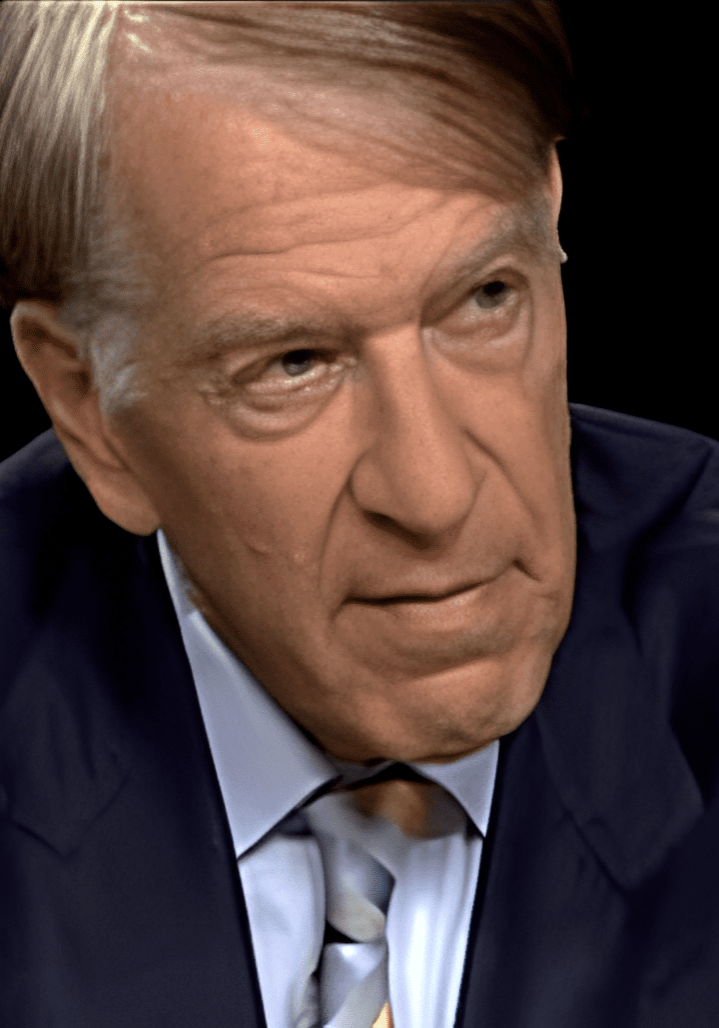
Roger Altman (D-MA) 5th U.S. Deputy Secretary of the Treasury
Roger Charles Altman, a highly accomplished individual, has played a pivotal role in shaping American finance and economic policy. Born in Brookline, Massachusetts, Altman's remarkable career spans across both the public and private sectors.
Altman's journey in public service began as the U.S. Assistant Secretary of the Treasury under President Jimmy Carter. During his tenure, Altman demonstrated a deep understanding of economic matters and contributed significantly to the formulation of key policies.
Continuing his commitment to public service, Altman served as the Deputy Secretary of the Treasury during the Clinton administration. In this role, he played a crucial part in managing the nation's finances, implementing initiatives to boost economic growth, and promoting financial stability.
Altman's financial acumen and expertise led him to become the Director of the Resolution Trust Corporation (RTC). In this role, he successfully navigated the challenges of the savings and loan crisis, overseeing the resolution of numerous financial institutions and ensuring the stability of the banking system.
Altman's exceptional track record and insights earned him the position of Chief Economic Adviser to Presidents Clinton, Obama, and Biden. His expertise and guidance have been instrumental in formulating economic policies, addressing key financial challenges, and fostering sustainable growth.
Transitioning to the private sector, Altman achieved extraordinary success in the financial industry. He played a pivotal role at Lehman Brothers, where his strategic vision and leadership contributed to the firm's growth and success. Subsequently, Altman co-founded the Blackstone Group and served as a key figure in expanding its operations and influence.
Drawing on his extensive experience, Altman founded Evercore, where he currently serves as the Chairman. Under his guidance, Evercore has become a prominent global investment banking advisory firm, providing strategic counsel to clients across various sectors.
Throughout his career, Altman has demonstrated a deep commitment to economic stability, financial expertise, and public service. His educational background includes a degree from Georgetown University and a law degree from the University of Chicago.
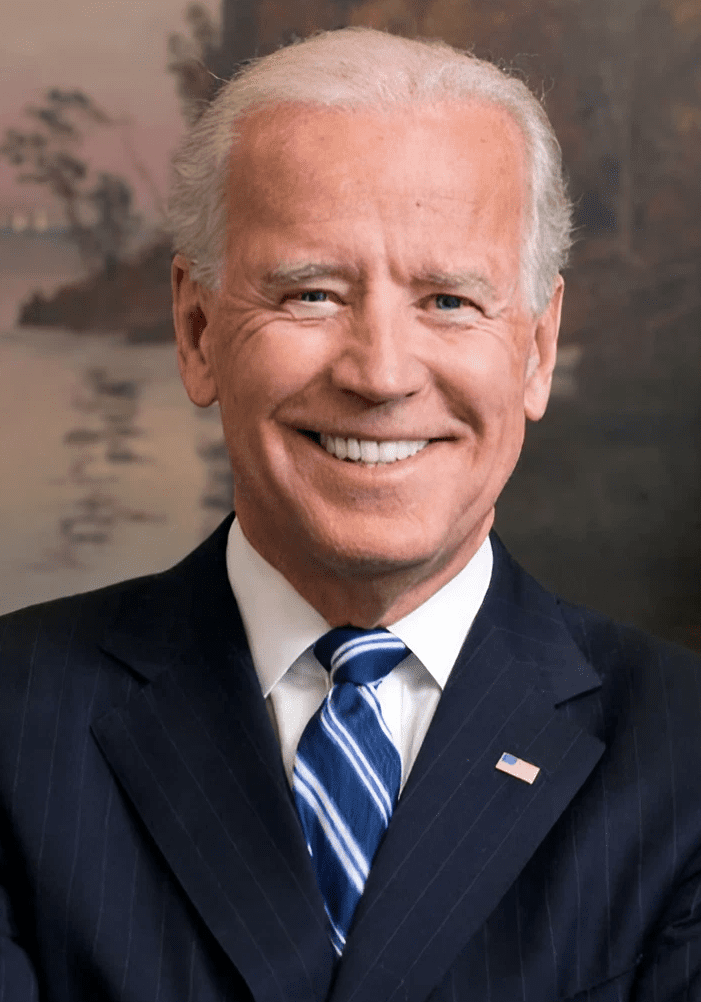
President Joe Biden (D-DE)
Joseph Robinette Biden Jr., Joe Biden, an esteemed American politician, has dedicated his life to public service and has made significant contributions at every level of government. Born on November 20, 1942, in Scranton, Pennsylvania, Biden's background as a working-class Irish-American shaped his values of empathy, compassion, and determination.
Biden's political career spans over five decades, beginning as a member of the United States Senate from Delaware from 1973 to 2009. During his tenure, he played key roles in numerous legislative achievements, including the Violence Against Women Act and the Assault Weapons Ban.
In 2009, Biden became the 47th Vice President of the United States under President Barack Obama. He was a trusted advisor to President Obama and played a crucial role in the passage of the Affordable Care Act.
Biden's presidential victory in 2020 marked a historic milestone in his career. As the 46th President of the United States, he has focused on addressing pressing issues such as the COVID-19 pandemic, climate change, racial justice, and economic recovery.
Furthermore, Biden's contributions to the Federal Home Loan Bank System during his early years in the Senate demonstrated his commitment to affordable housing and financial stability for American families.
Joe Biden's diverse political accomplishments, from his roles as President, Vice President, and Senator to his contributions to the Federal Home Loan Bank System, reflect his deep understanding of the complexities of governance and his unwavering commitment to serving the American people.
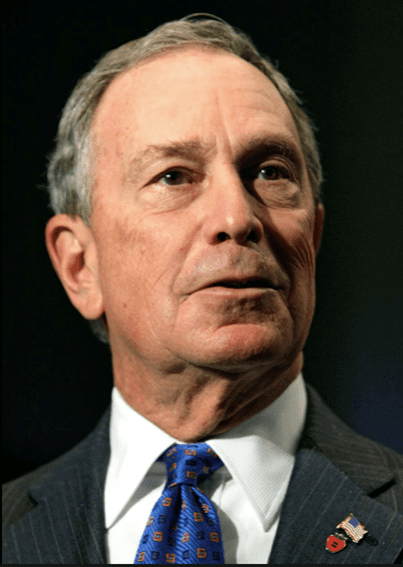
Michael Bloomberg (R-NY) 108th Mayor of New York City
Michael Rubens Bloomberg, a renowned figure in business and politics has achieved significant accomplishments throughout his career. Born in Boston, Massachusetts, Bloomberg's personal background has shaped his journey towards success.
Bloomberg's tenure as Mayor of New York City showcased his exceptional leadership skills. During his time in office, he implemented innovative policies that transformed the city's governance and revitalized its economy. His contributions to the New York Industrial Agency and the New York Economic Development Corporation were instrumental in fostering business growth and creating job opportunities for the city's residents.
Another noteworthy accomplishment was Bloomberg's involvement with the NYC Commission on Human Rights. This commission, with a rich history dating back to 1945, plays a crucial role in promoting equality and combating discrimination within the city. Bloomberg's dedication to this cause further solidified his commitment to fostering a fair and inclusive society.
In addition to his work in government, Bloomberg currently serves as the Chairman of the Defense Innovation Board, where he provided valuable insights and guidance on emerging technologies and their potential applications in the defense sector.
Michael Bloomberg's profound impact on various domains, including politics, business, and human rights, exemplifies his remarkable career. His contributions as Mayor, his involvement in key agencies and commissions, and his leadership in the defense sector reflect his commitment to improving the lives of others and driving positive change.
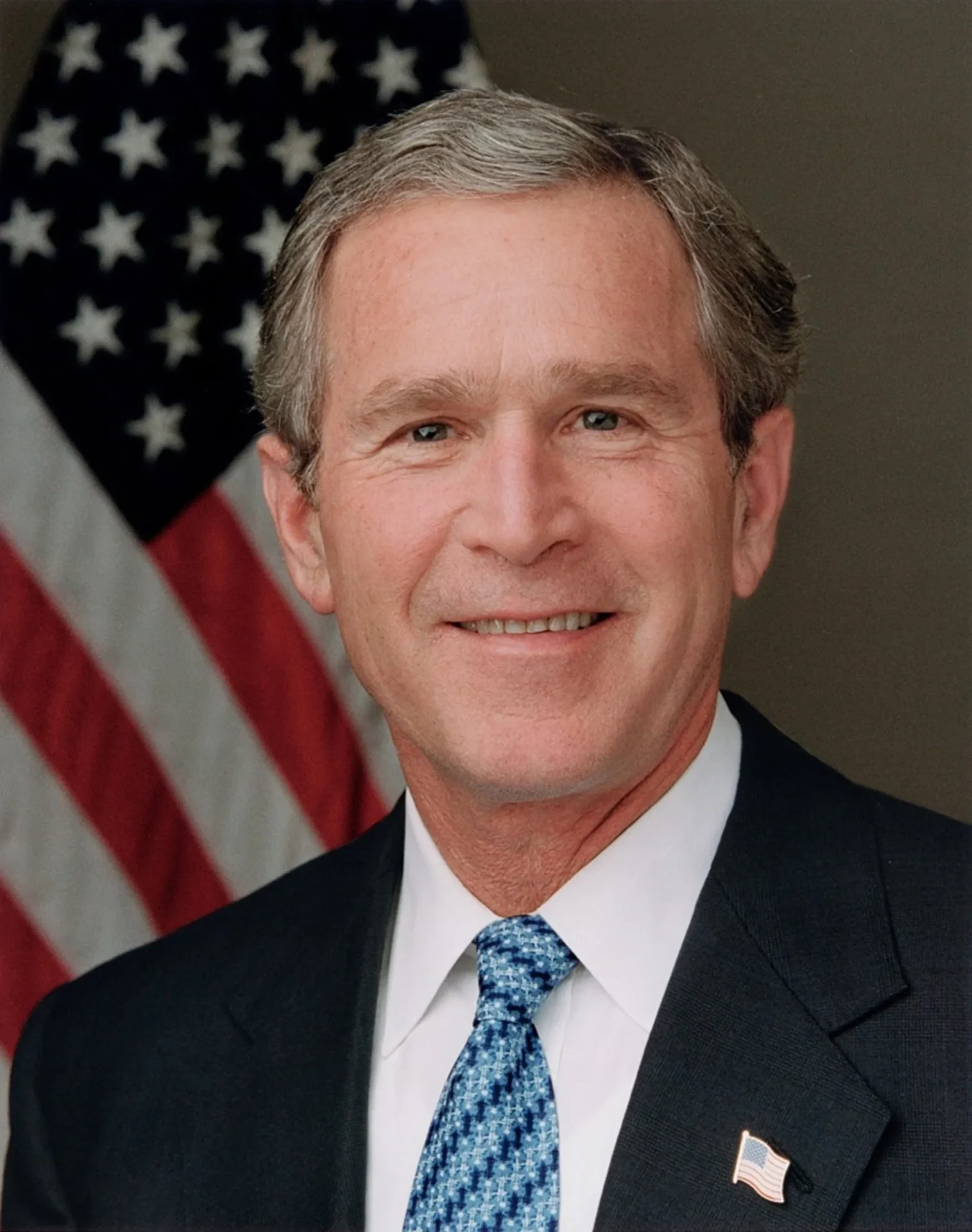
President George W. Bush (R-TX)
George W. Bush, the 43rd President of the United States, held office from 2001 to 2009. Born on July 6, 1946, in New Haven, Connecticut, Bush hailed from a renowned political dynasty. His father, George H.W. Bush, had also served as President.
Bush's political journey began as the Governor of Texas, where he showcased his conservative principles and leadership abilities. In the 2000 presidential election, he narrowly triumphed over Al Gore, ascending to the presidency.
During his tenure, Bush confronted numerous challenges, most notably the September 11, 2001, terrorist attacks. In response, he displayed resolve by implementing counterterrorism measures and initiating military actions in Afghanistan and Iraq.
Bush's domestic agenda featured tax cuts, education reform, and the Medicare Prescription Drug, Improvement, and Modernization Act. He also prioritized the promotion of democracy and human rights globally.
Despite facing controversy and criticism throughout his presidency, Bush's unwavering commitment to national security and efforts to bolster the economy left an enduring impact on American politics. Today, he is widely recognized as a significant figure in contemporary American history.
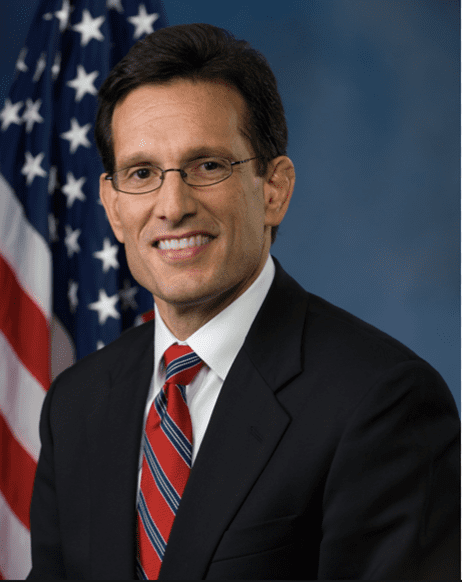
House Majority Leader Eric Ivan Cantor (R-VA)
Eric Ivan Cantor is a distinguished American politician who has made significant contributions to the nation's political landscape. Notably, he served as the United States House of Representatives Majority Leader from 2011 to 2014, a role in which he displayed exceptional leadership and strategic prowess.
During his tenure as Majority Leader, Cantor played a pivotal role in shaping and advancing key legislative initiatives. His ability to navigate complex political landscapes and build consensus enabled him to effectively steer the Republican Party's agenda. Under his guidance, important legislation on economic growth, tax reform, and healthcare were successfully advanced.
Cantor's political accomplishments extend beyond his role as Majority Leader. He has been a tireless advocate for conservative principles and has consistently championed pro-growth policies and free-market solutions. Additionally, Cantor has been instrumental in supporting and mentoring emerging leaders within the Republican Party.
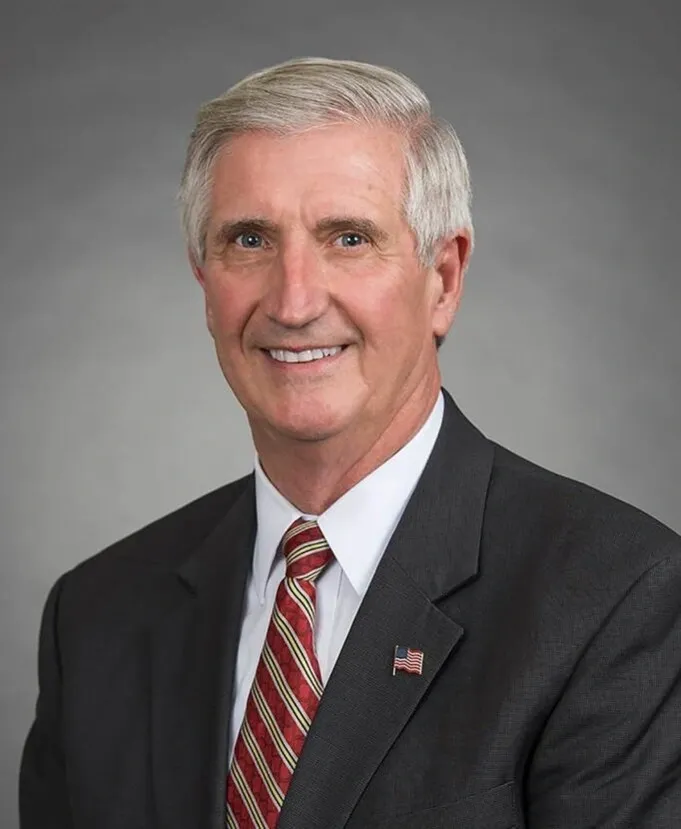
Andrew Card Jr., Republican 21st White House Chief of Staff
Andrew Card Jr., born on May 10, 1947, is an American politician who served as the 21st White House Chief of Staff under President George W. Bush from 2001 to 2006. With a rich background in politics, Card's contributions to American governance are significant.
Card began his political career as a member of the Massachusetts House of Representatives in the 1970s. He later worked in the Reagan administration, serving as Deputy Assistant to the President and Director of Intergovernmental Affairs. Card went on to become Secretary of Transportation under President George H.W. Bush, where he played a crucial role in managing the nation's transportation policies.
As Chief of Staff, Card played a key role in advising President Bush during a tumultuous time, including the September 11 attacks. He provided steady leadership, helping to shape policies and manage the White House staff effectively. Card's tenure was marked by his dedication, professionalism, and commitment to public service.
Throughout his career, Card has demonstrated a deep understanding of American politics and a commitment to serving the country. His contributions to the nation's governance have had a lasting impact, making him a respected figure in American politics.
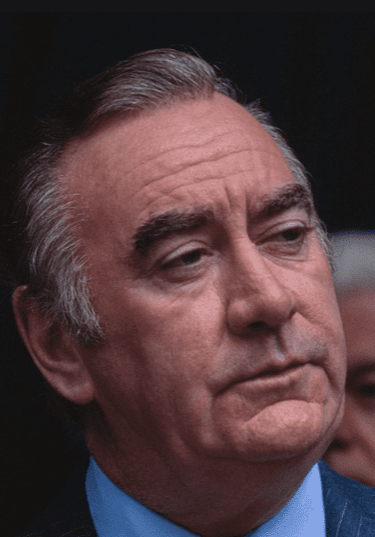
Governor Hugh Carey (D-NY)
Hugh Leo Carey, a distinguished American politician, left an indelible mark on the state of New York and the nation as a whole. Born on April 11, 1919, in Brooklyn, New York, Carey's background as the son of Irish immigrants instilled in him a strong work ethic and commitment to public service.
Carey's political career began as a member of the United States House of Representatives, serving New York's 12th congressional district from 1961 to 1974. He was a staunch advocate for civil rights and played a pivotal role in the passage of the Fair Housing Act of 1968.
However, it was as the 51st Governor of New York from 1975 to 1982 that Carey truly made his mark. Facing a severe financial crisis, he implemented tough fiscal policies, successfully steering the state towards economic recovery. His leadership during this challenging period earned him national recognition.
In later years, Carey served as the chairman of the World War Two Memorial Advisory Board under President Bill Clinton. He played a crucial role in the establishment of the World War Two Memorial site in Washington, D.C., honoring the sacrifices of millions of Americans during the war.
Hugh Carey's political accomplishments, both as governor and congressman, demonstrated his dedication to public service and his ability to navigate complex challenges. His role in the creation of the World War Two Memorial site serves as a testament to his commitment to honoring the nation's history and those who fought for its ideals.
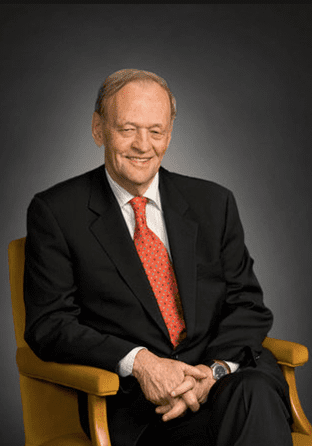
The Right Honorable Jean Chrétien 20th Prime Minister of Canada
Joseph Jacques Jean Chrétien, a prominent figure in Canadian politics has made significant contributions both domestically and internationally during his tenure as Prime Minister of Canada. Born in Shawinigan, Quebec, and Chrétien’s personal background played a crucial role in shaping his political career.
As Prime Minister, Chrétien achieved notable accomplishments domestically. He implemented policies focused on strengthening the Canadian economy, improving social welfare, and fostering national unity. His pragmatic approach and ability to navigate complex political situations were key to his success.
Internationally, Chrétien played an active role in promoting diplomacy and peace. Notably, he received the Franklin D. Roosevelt International Disability award at the United Nations for his exceptional efforts in advancing the rights and inclusion of persons with disabilities. This recognition highlights his commitment to human rights and equality on a global scale.
Educated at the Université Laval, Chrétien's academic background provided him with a solid foundation for his political career. His dedication to public service and his ability to connect with the Canadian people contributed to his success as a politician.
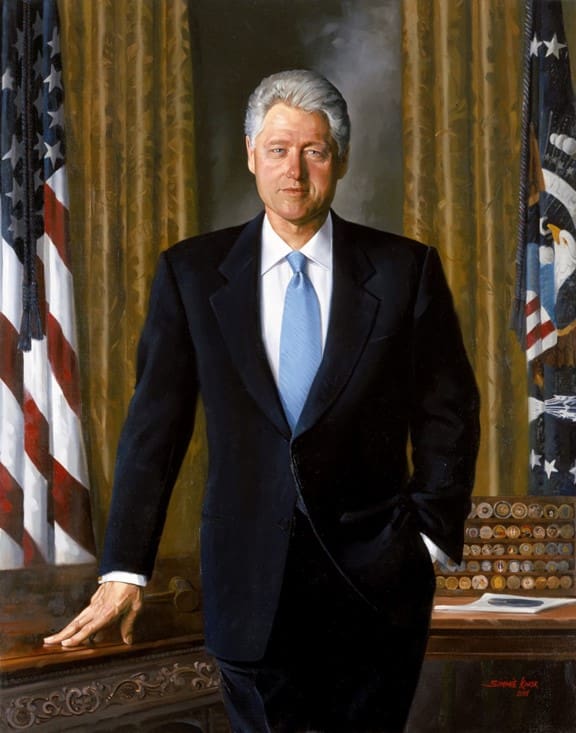
President Bill Clinton (D-AR)
Bill Clinton, the 42nd President of the United States, was born on August 19, 1946, in Hope, Arkansas. Raised in a middle-class family, Clinton excelled academically and went on to study at Georgetown University and Yale Law School. His early career involved teaching law, as well as serving as the Attorney General of Arkansas.
Clinton's political journey began in 1978 when he was elected as the youngest governor of Arkansas, a position he held for five terms. As governor, he implemented progressive policies, such as improving education and healthcare accessibility. His focus on economic growth and job creation laid the foundation for his later presidential agenda.
In 1993, Clinton took office as President, bringing with him a vision of economic growth and social progress. His administration oversaw the longest period of peacetime economic expansion in American history. Clinton championed welfare reform, expanded healthcare access for children through the Children's Health Insurance Program, and signed the Family and Medical Leave Act into law. He also focused on reducing the federal budget deficit and promoting international trade.
Despite facing controversies, such as the Whitewater scandal and impeachment proceedings, Clinton left a lasting impact on American politics. His efforts to broker peace in Northern Ireland and the Middle East earned him international recognition. Clinton's commitment to public service and his pursuit of policies that aimed to improve the lives of Americans solidified his place as a prominent figure in American political history.
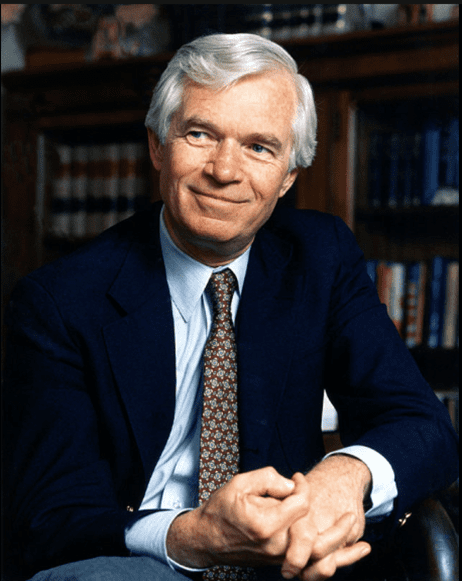
Senator Thad Cochran (R-MS)
William Thad Cochran, a highly respected figure in American politics, has made remarkable contributions throughout his extensive career. Born in Pontotoc, Mississippi, Senator Cochran pursued his education at the University of Mississippi, where he earned a law degree.
As a U.S. Senator, Cochran's accomplishments are numerous. Notably, he served as Chairman of the Senate Appropriations Committee, where he exhibited exceptional leadership in shaping the nation's budgetary policies. With a keen understanding of fiscal matters, he prioritized responsible allocation of resources.
Cochran's expertise and political acumen led to his appointment as Chairman of the Senate Republican Conference, where he skillfully fostered party unity and advanced the interests of his colleagues. He navigated the intricacies of the political landscape with finesse.
Additionally, Cochran held the position of Chairman of the Senate Agriculture Committee, where he championed policies that supported American farmers and ensured food security. His deep commitment to the agricultural sector was evident in his efforts to protect and advance the interests of farmers nationwide.
Beyond these roles, Cochran was actively involved with the Federal Home Loan Bank System, where he played a significant role in oversight and reform efforts. His dedication to upholding the stability and integrity of the financial sector was evident through his commitment to promoting transparency and accountability.

Kellyanne Conway (R-NJ) Senior Counselor to the President
Kellyanne Elizabeth Conway, a highly accomplished political strategist and senior counselor to the president, has made significant contributions to the American political landscape. Born in Atco, New Jersey, Conway's journey to success was marked by her exceptional intelligence and dedication to public service.
Educated at Trinity College in Washington, D.C., Conway honed her skills in political science and polling, laying the foundation for her future career. Her keen understanding of public sentiment and ability to connect with voters made her a sought-after consultant in the political arena.
Conway's most notable achievement came in 2016 when she became the first woman to successfully manage a U.S. presidential campaign, leading Donald Trump to victory. Her strategic acumen, relentless work ethic, and ability to effectively communicate the campaign's message were instrumental in achieving this historic feat.
As senior counselor to the president, Conway played a pivotal role in shaping policy initiatives and advising the administration on key matters. Her unwavering commitment to the conservative agenda and her ability to articulate complex issues has earned her respect from colleagues and adversaries alike.
Throughout her career, Conway has demonstrated exceptional leadership and a dedication to advancing conservative principles. Her achievements have cemented her place as a respected figure in American politics, and her groundbreaking role as the first woman to lead a successful U.S. presidential campaign will inspire future generations of political leaders.
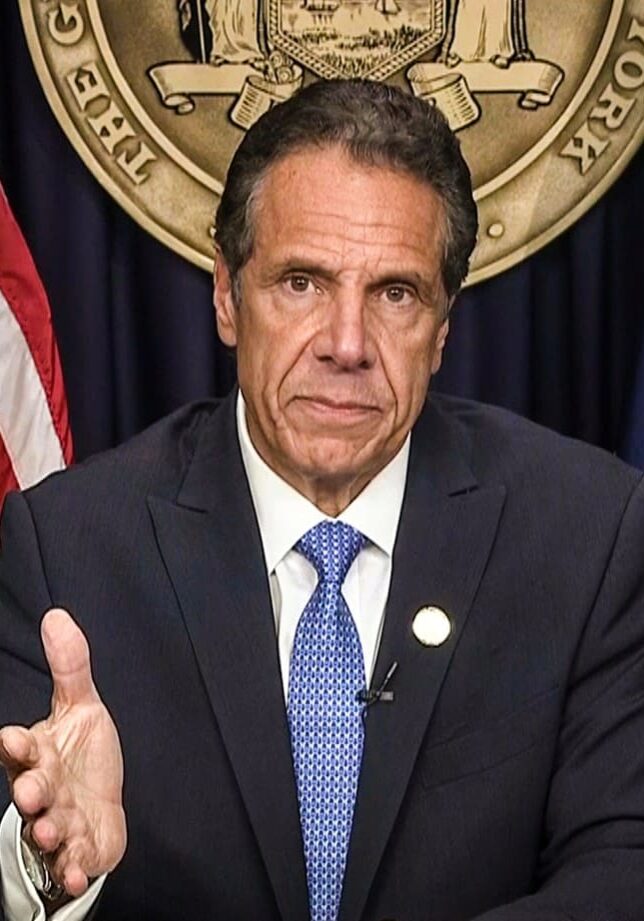
Governor Andrew Cuomo (D-NY)
Andrew Cuomo is a prominent figure in American politics, known for his extensive contributions and achievements. Born on December 6, 1957, in Queens, New York, Cuomo hails from a political family, with his father, Mario Cuomo, serving as New York's governor.
Andrew Cuomo's political career began in the 1980s, when he worked as an advisor to his father's administration. He later served as the U.S. Secretary of Housing and Urban Development under President Bill Clinton, where he implemented policies to promote affordable housing and the revitalization of urban areas.
Cuomo's biggest impact came during his time as the 56th Governor of New York, a position he held for three terms from 2011 to 2021. He spearheaded significant reforms, including the legalization of same-sex marriage, gun control measures, and the implementation of a $15 minimum wage.
His leadership during the COVID-19 pandemic gained national attention, with his daily briefings providing crucial information and guidance. Cuomo's proactive approach to managing the crisis earned him admiration and recognition.
Throughout his career, Andrew Cuomo has been a vocal advocate for progressive policies and a force in American politics, leaving a lasting impact on the state of New York and the nation as a whole.
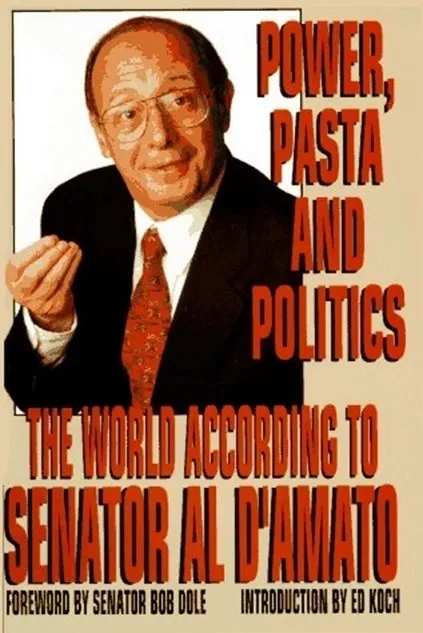
Senator Al D’Amato (R-NY)
Al D'Amato, a prominent figure in American politics, has made significant contributions throughout his career. Born in 1937, D'Amato served as a United States Senator from New York from 1981 to 1999. He was known for his friendly and approachable demeanor, earning him the nickname “Senator Pothole” due to his dedication to assisting constituents with everyday issues.
D'Amato's achievements span a variety of areas. He was a strong advocate for small businesses, advocating for their growth and supporting legislation that promoted entrepreneurship. Additionally, D'Amato played a crucial role in shaping transportation policy, particularly in securing funding for infrastructure projects in New York City.
Furthermore, D'Amato was an influential voice in foreign policy, particularly on issues related to Israel. He actively supported aid packages and initiatives that strengthened the U.S.-Israel relationship and promoted peace in the Middle East.
Beyond his policy achievements, D'Amato was known for his ability to bridge political divides and work across party lines. His bipartisan approach helped him achieve tangible results and build strong relationships with colleagues.
Overall, Al D'Amato's background, achievements, and contributions have left a lasting impact on American politics, demonstrating his commitment to the betterment of his constituents and the nation as a whole.
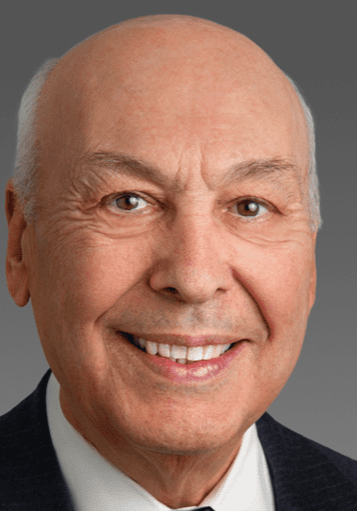
Alfred A. DelliBovi (R-NY) President of the Federal Home Loan Bank of New York
Alfred A. DelliBovi, is a highly accomplished individual who has made significant contributions to the fields of finance, housing, and transportation throughout his illustrious career. Born and raised in New York, DelliBovi's personal background and education laid the foundation for his successful journey in public service.
DelliBovi's impressive career includes serving as the President of the Federal Home Loan Bank of New York, where his leadership skills and financial expertise played a crucial role in advancing the bank's mission. Under his guidance, the bank made significant strides in providing affordable housing and promoting economic development.
Prior to his role at the Federal Home Loan Bank, DelliBovi served as the United States Deputy Secretary of Housing and Urban Development under President George H. W. Bush. In this capacity, he demonstrated his deep commitment to addressing the nation's housing needs and played a pivotal part in shaping policies aimed at improving housing affordability and access to safe homes for all Americans.
DelliBovi's extensive experience in transportation includes his tenure as the Administrator of the Urban Mass Transportation Administration at the U.S. Department of Transportation under President Ronald Reagan. During his time in this position, he worked diligently to enhance the efficiency and accessibility of public transportation systems, contributing to improved urban development and mobility.
Before his federal appointments, DelliBovi served as a Member of the New York State Assembly, where he represented his constituents with dedication and integrity.
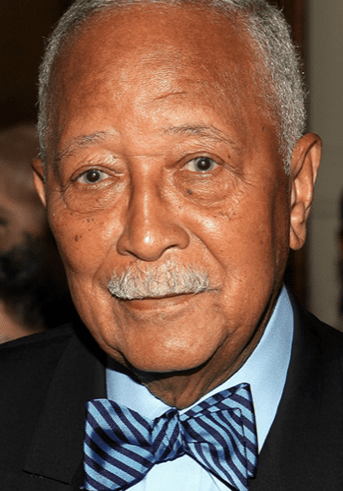
David Dinkins (D-NY) 106th Mayor of New York City
David Dinkins, a distinguished American politician, has left an indelible mark on the city of New York during his tenure as its 106th mayor. Born on July 10, 1927, in Trenton, New Jersey, Dinkins embarked on a remarkable career that spanned over four decades.
Dinkins served as the Mayor of New York City from 1990 to 1993, becoming the first African American to hold this prestigious position. During his mayoralty, Dinkins successfully implemented programs to combat crime, improve race relations, and revitalize the city's economy. His efforts in fostering unity and diversity earned him praise and admiration, solidifying his legacy as a trailblazer in American politics.
Beyond his political achievements, Dinkins is also known for his passion for tennis. Throughout his life, he remained an avid player and advocate for the sport, recognizing the values of discipline, perseverance, and fair play that it instills. Dinkins' love for tennis further exemplifies his dedication to promoting physical fitness and recreational activities for all.
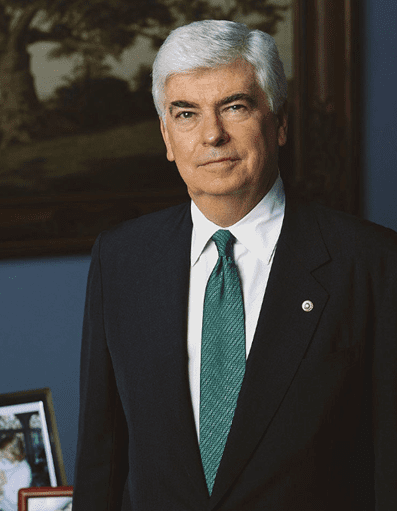
Senator Christopher Dodd (D-CT)
Christopher Dodd, widely known as Chris Dodd, is a highly esteemed American politician who made a significant impact on financial reform. Born on May 27, 1944, in Willimantic, Connecticut, Dodd has dedicated his career to public service, particularly in the realm of finance and banking.
After completing his education at Providence College and the University of Louisville School of Law, Dodd embarked on a political journey. He served in the United States Army Reserve and volunteered for the Peace Corps in the Dominican Republic. In 1974, Dodd was elected to the U.S. House of Representatives, representing Connecticut's 2nd congressional district. During his tenure in the House, he focused on consumer protection and civil rights, contributing to the passage of the Family and Medical Leave Act.
In 1980, Dodd successfully ran for the United States Senate, serving for thirty years until his retirement in 2011. As the Chairman of the Senate Committee on Banking, Housing, and Urban Affairs, Dodd played a pivotal role in the passage of the Dodd-Frank Wall Street Reform and Consumer Protection Act in 2010. This legislation aimed to address the regulatory failures and systemic risks that led to the 2008 financial crisis.
Dodd's leadership and negotiation skills were crucial in navigating the complex legislative process. The Dodd-Frank Act introduced significant reforms to the financial industry, including the establishment of the Consumer Financial Protection Bureau (CFPB) and the implementation of stricter regulations on banks and financial institutions. These reforms sought to enhance transparency, accountability, and stability within the financial system while safeguarding consumers.
Senator Chris Dodd's role in the passage of Dodd-Frank solidified his reputation as an accomplished legislator committed to financial reform. His comprehensive understanding of financial systems and dedication to protecting the public's interests have left a lasting impact on the nation's financial regulations.
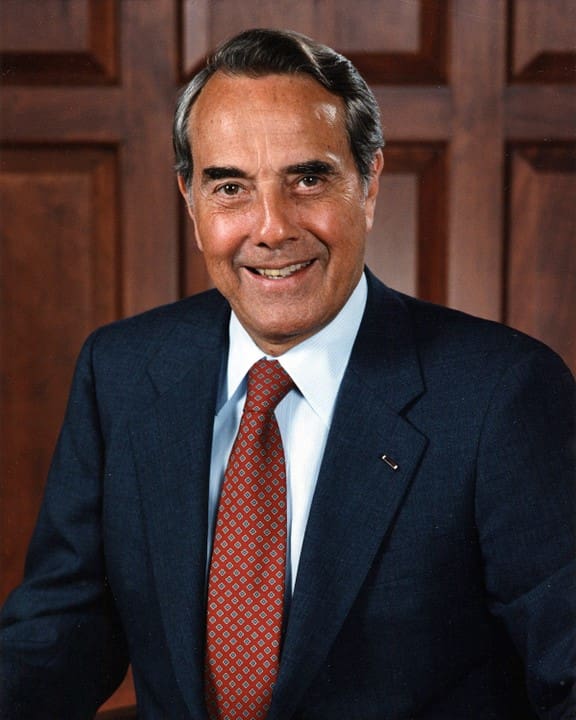
Senator Bob Dole (R-KS) Senate Majority Leader
Bob Dole, a prominent figure in American politics, was born on July 22, 1923, in Russell, Kansas. Dole's political career began after serving in World War II, where he sustained severe injuries that left him with lifelong disabilities.
Dole's journey in politics led him to become a member of the House of Representatives in 1961, followed by his election to the Senate in 1968. He served as Senate Majority Leader from 1985 to 1996, playing a pivotal role in shaping legislative agendas and guiding important legislation through Congress.
Dole's achievements include his work on the landmark Americans with Disabilities Act, which aimed to protect the rights of individuals with disabilities. He also played a significant role in the passage of the Tax Reform Act of 1986 and the Food Security Act of 1985.
Dole's contributions to American politics extend beyond legislation. In 1996, he ran as the Republican nominee for President, highlighting his commitment to fiscal responsibility, strong national defense, and bipartisan cooperation.
Throughout his career, Dole's leadership, pragmatism, and dedication to public service left an indelible mark on American politics, earning him respect from both sides of the aisle. Today, he is regarded as a statesman and an influential figure in modern American history.
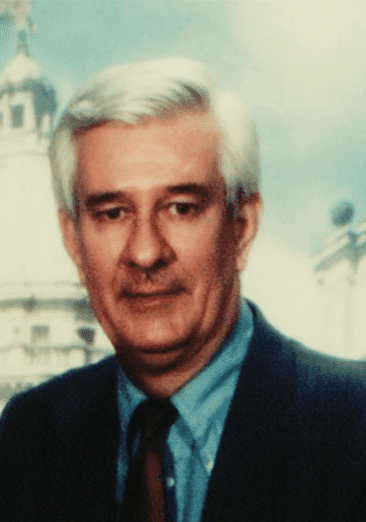
Lieutenant Governor Brad Dye (D-MS)
Brad Dye, the Lieutenant Governor of Mississippi, is a seasoned politician known for his remarkable background, numerous achievements, and significant contributions to American politics. With an impressive career spanning several decades, Dye has dedicated his life to public service and improving the lives of Mississippians.
Born and raised in Mississippi, Dye developed a deep understanding of the state's unique challenges and opportunities. After completing his education, he embarked on a political journey that would shape his future. Dye served as a member of the Mississippi House of Representatives before being elected Lieutenant Governor in 1980.
Throughout his tenure, Dye has championed various causes, focusing on economic growth, education reform, and healthcare accessibility. He has been instrumental in securing funding for infrastructure projects, attracting businesses to the state, and promoting job creation.
Dye's commitment to education has been unwavering, advocating for increased funding for schools, improving teacher salaries, and expanding access to quality education for all Mississippi students. Additionally, he has worked tirelessly to improve healthcare services, particularly for underserved communities.
Recognized for his leadership and dedication, Dye has received numerous accolades and awards for his contributions to American politics. His passion for serving the people of Mississippi remains unwavering, and his efforts continue to make a positive impact on the state's future.
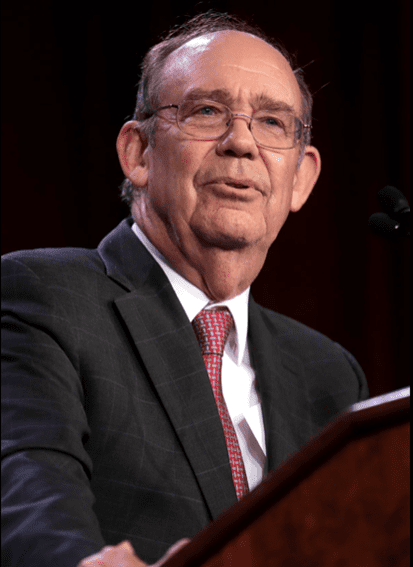
Dwight David Eisenhower II
American Author, Public Policy Fellow,
Professor at the University of Pennsylvania
Dwight David Eisenhower II, widely known as David Eisenhower, is a distinguished American author and writer, renowned for his contributions to history and international relations. As the grandson of President Dwight D. Eisenhower, his close relationship with the esteemed leader has shaped his understanding of politics and governance.
Eisenhower's exceptional writing skills have been showcased in his acclaimed book, "Eisenhower at War: 1943-1945," a masterful analysis of his grandfather's military leadership during World War II. This work propelled him to become a finalist for the prestigious Pulitzer Prize in history, solidifying his reputation as a formidable historian.
Moreover, Eisenhower's family connection to President Eisenhower led to the naming of the iconic presidential retreat, Camp David, in honor of his family's contributions. This recognition stands as a testament to the enduring impact of the Eisenhower legacy on American history and leadership.
In addition to his literary achievements, Eisenhower's personal life is equally notable. He married Julie Nixon, daughter of President Richard Nixon, forging a powerful political union.
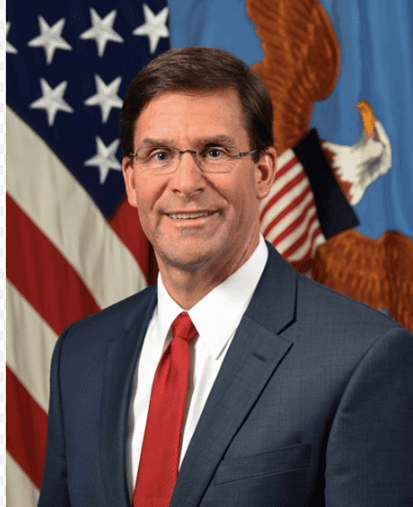
Mark Esper (R-PA) 27th U.S. Secretary of Defense
Mark Thomas Esper, is a highly accomplished individual in the field of national defense, with a remarkable career serving his country in various capacities. Born in Uniontown, Pennsylvania, Esper's personal background has greatly influenced his path towards public service.
Esper's accomplishments as Secretary of Defense and Secretary of the Army highlight his commitment to national security and defense. During his tenure, he played a pivotal role in shaping defense policy, modernizing the armed forces, and ensuring their readiness. His leadership and expertise were instrumental in safeguarding the nation's interests.
Educated at the United States Military Academy at West Point and later at Harvard University, Esper's educational background provided him with a solid foundation for his career in defense. His exceptional knowledge and understanding of military affairs enabled him to effectively represent the United States both domestically and internationally.
Mark Esper's legacy as a leader is defined by his unwavering commitment to national security and his significant contributions to the field of defense. His accomplishments as Secretary of Defense and Secretary of the Army exemplify his dedication to serving his country.
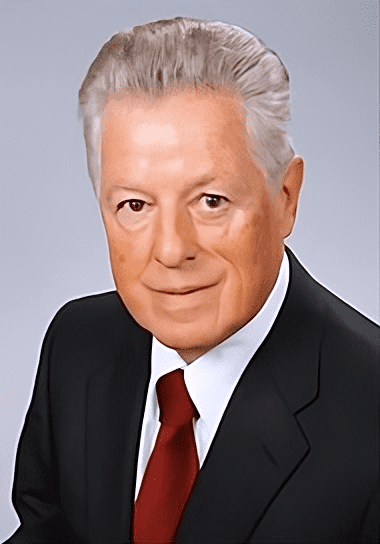
Governor Jim Florio (D-NJ)
James Joseph Florio, a distinguished American politician, made significant contributions to the state of New Jersey and beyond. Serving as the 49th Governor of New Jersey from 1990 to 1994, Florio left an indelible mark on the state's political landscape. Born on August 29, 1937, in Brooklyn, New York, Florio's passion for public service was evident from an early age.
As governor, Florio implemented groundbreaking policies, including the Clean Water Enforcement Act and the Quality Education Act, which aimed to improve environmental standards and enhance education in New Jersey. His tenure also witnessed the creation of the Department of Environmental Protection, reaffirming his commitment to environmental conservation.
Beyond his gubernatorial accomplishments, Florio served as the Chairman of the Federal Home Loan Bank of New York, where he played a pivotal role in ensuring the stability and accessibility of housing finance. His expertise and leadership in this role further solidified his reputation as a seasoned statesman.
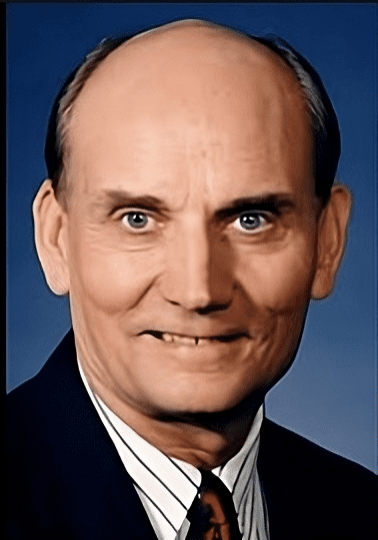
Senator E. J. "Jake" Garn (R-UT)
Edwin Jacob "Jake" Garn is a prominent American politician and a key figure in the realm of space exploration. Renowned for his political achievements, he served as a United States Senator from Utah for an illustrious tenure spanning from 1974 to 1993. Throughout his career, Garn made significant contributions to the nation's space program, championing its growth and advancement.
Notably, Garn's passion for space exploration led to his selection as a payload specialist on NASA's Space Shuttle Discovery mission in 1985. This historic journey made him the first sitting member of Congress to venture into space. His firsthand experience and expertise provided valuable insights into the challenges and opportunities of space travel, greatly influencing the nation's space policies.
Garn's political acumen and unwavering commitment to advancing space exploration have left an indelible mark on American history. His contributions have paved the way for future generations of astronauts and have helped shape the nation's understanding of the vast potential of space. Senator Jake Garn's remarkable achievements in both politics and space exploration continue to inspire and propel the nation's pursuit of scientific discovery beyond Earth's boundaries.
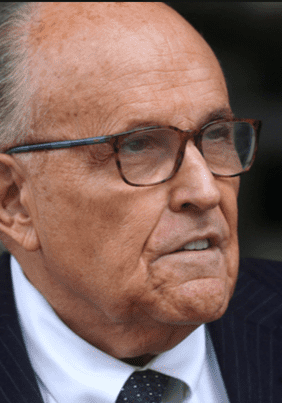
Rudy Giuliani (R-NY) 107th Mayor of New York City
Rudolph William Louis Giuliani, a native of Brooklyn, New York, has had a remarkable career in public service and law. After completing his education, Giuliani embarked on a path that would see him hold various esteemed positions.
Rudy Giuliani's remarkable journey in politics began with his appointment as the US Associate Attorney General under President Reagan, the third-highest-ranking official at the U.S. Department of Justice. As the Associate Attorney General, Rudy Giuliani made notable contributions to the department. He actively participated in shaping policies, overseeing critical legal matters, and ensuring the principles of justice were upheld. Giuliani's expertise and leadership played a key role in addressing organized crime, corruption, and drug trafficking, helping to strengthen law enforcement efforts and safeguarding the interests of the American people.
This dedication led to his appointment by President Reagan as the US Attorney for the Southern District of New York. During his tenure, Rudy Giuliani made remarkable contributions to the legal landscape. He demonstrated a strong commitment to combating organized crime, leading successful prosecutions against prominent mafia figures. Giuliani's tenure was marked by his relentless pursuit of justice, emphasizing the importance of holding criminals accountable. He also prioritized tackling white-collar crime and public corruption, working diligently to maintain the integrity of the legal system and safeguard the interests of the public.
However, Giuliani's most notable role came as the Mayor of New York City from 1994 to 2001. During his tenure, he implemented effective policies that resulted in significant reductions in crime rates and a revitalized economy. He also demonstrated remarkable strength and leadership in the face of the tragic September 11th, 2001 terrorist attacks.
Beyond his professional accomplishments, Giuliani's personal background is also noteworthy having successfully completed his legal studies at New York University Law School, and thereby laying the foundation for his successful legal career.
Rudy Giuliani's unwavering dedication to public service, his notable roles as Mayor and in the US Department of Justice, and his personal background as a native New Yorker and accomplished lawyer, all contribute to his impressive legacy in the field of law enforcement and governance.
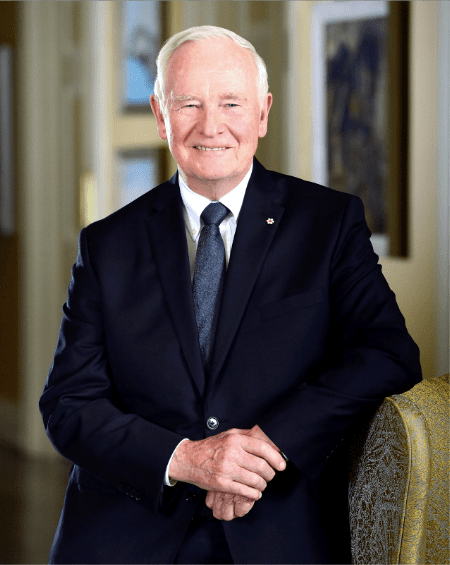
The Right Honorable David Johnson 28th Governor General of Canada
Right Honorable David Johnson, a distinguished Canadian statesman, served as the Governor General of Canada from 2010 to 2017, leaving an indelible mark on the nation. Born on June 28, 1941, in Outremont, Quebec, Johnson's illustrious career spanned over several decades, encompassing various academic, legal, and diplomatic roles.
As Governor General, Johnson embodied the highest office in the Canadian constitutional framework, representing Queen Elizabeth II and serving as the ceremonial head of state. During his tenure, he worked tirelessly to strengthen the bonds of unity and diversity within Canada, promoting inclusivity and multiculturalism. His commitment to fostering dialogue, understanding, and reconciliation among different communities showcased his deep understanding of the importance of national unity.
Johnson's accomplishments as Governor General extended beyond ceremonial duties. He actively supported initiatives promoting education, innovation, and volunteerism throughout his tenure. His commitment to these causes earned him widespread admiration and respect from Canadians across the country.
For non-Canadian citizens, the role of Governor General holds immense importance and significance. As the representative of the monarch, the Governor General plays a crucial role in upholding the country's constitutional framework, ensuring stability, and fostering national cohesion. The Governor General serves as a symbol of continuity and unity, representing the country's diverse heritage and values.
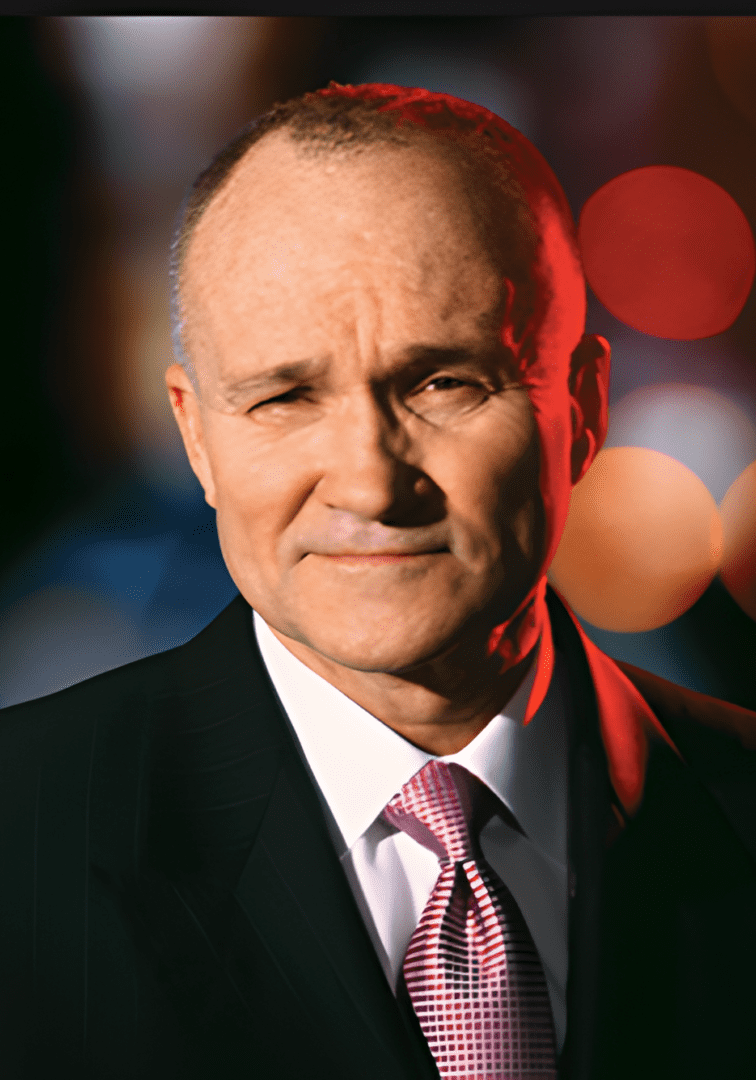
Ray Kelly (I-NY) Police Commissioner of New York City
Raymond Walter Kelly, a highly accomplished public servant, has made significant contributions to the field of law enforcement and national security. Born in New York City, Kelly's passion for public service was evident from an early age.
Kelly's illustrious career began with his service as the 37th and 41st Police Commissioner of New York City. During his tenure, he implemented groundbreaking strategies that resulted in a significant decrease in crime rates and enhanced community relations. His leadership and innovative approaches earned him the respect of his colleagues and the public.
Kelly's expertise in law enforcement led to his appointment as the 16th Commissioner of the United States Customs Service. In this role, he tackled issues related to border security and smuggling, further solidifying his reputation as a skilled and effective leader.
His dedication to national security was recognized when he served as the Under Secretary of the Treasury for Terrorism and Financial Intelligence. Kelly's expertise in combating terrorism and disrupting illicit financial networks proved invaluable in safeguarding the nation's interests.
Throughout his career, Kelly served under several U.S. presidents, demonstrating his ability to work across party lines and serve with distinction. His commitment to public safety, combined with his extensive experience and strategic acumen, has made him a respected figure in the field.
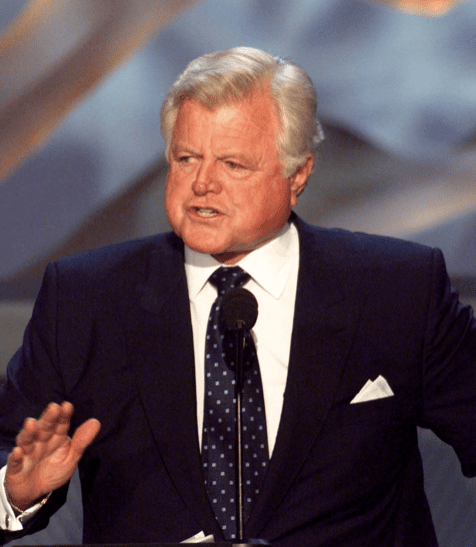
Senator Ted Kennedy (D-MA)
Ted Kennedy, born Edward Moore Kennedy on February 22, 1932, in Boston, Massachusetts, was an influential figure in American politics. He dedicated his career to public service, leaving a lasting impact as a U.S. Senator and a passionate advocate for numerous causes.
Throughout his tenure as a U.S. Senator, Kennedy demonstrated remarkable leadership and dedication. He served as the Chairman of the Senate Health Committee, where he played a pivotal role in improving healthcare accessibility for all Americans. Additionally, he served as the Chairman of the Senate Judiciary Committee, overseeing crucial legislative matters related to justice and civil liberties.
Senator Kennedy's commitment to public service extended beyond the halls of Congress. He actively engaged with the Federal Home Loan Bank System, working tirelessly to ensure affordable housing opportunities for Americans across the nation.
Born into the renowned Kennedy family, Ted Kennedy received his education from Harvard University, where he honed his skills and knowledge. He entered politics with a sense of purpose and determination, and his unwavering dedication to his constituents earned him respect and admiration throughout his career.
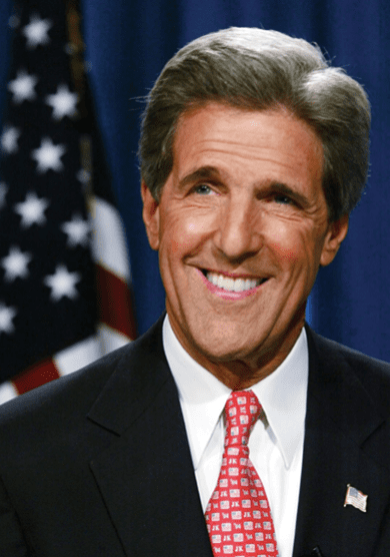
John Kerry (D-MA) 68th U.S. Secretary of State
John Forbes Kerry, an accomplished figure in American politics, has made significant contributions throughout his career. Born in Aurora, Colorado, Kerry's personal background includes his education at Yale University and his familial connection to the Forbes family.
Kerry's political achievements include serving as the Secretary of State and US Special Presidential Envoy for Climate, where he adeptly navigated complex international relations and championed environmental issues. As a Senator, he held prominent roles such as Chairman of the Senate Foreign Relations Committee, demonstrating his expertise in shaping America's foreign policy agenda.
Kerry's political career reached its zenith when he became the Democratic nominee for President, a testament to his ability to inspire and rally support. Although he narrowly missed the presidency, his campaign showcased his dedication to public service and his unwavering commitment to his principles.
Furthermore, Kerry's involvement with the Federal Home Loan Bank System exemplifies his understanding of the importance of a stable housing market and his dedication to maintaining the integrity of the financial sector.
Throughout his career, Kerry served under several presidents, including notable figures such as Barack Obama and Joe Biden. His remarkable journey, coupled with his personal background, reflects his deep-rooted passion for public service and his ongoing commitment to addressing global challenges. Kerry's leadership, experience, and dedication have solidified his position as a respected figure in American politics.
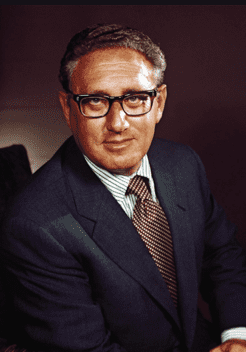
Henry Kissinger (R-NY) 56th U.S. Secretary of State
Henry Alfred Kissinger, a renowned political figure, has left an indelible mark on American foreign policy. Born on May 27, 1923, in Fürth, Germany, Kissinger's background as a Jewish refugee fleeing Nazi persecution shaped his worldview and commitment to global diplomacy.
As the United States National Security Adviser from 1969 to 1975 and later as the Secretary of State under Presidents Richard Nixon and Gerald Ford, Kissinger played a pivotal role in shaping American foreign policy during the Cold War era. He was a key architect of the policy of détente, aimed at easing tensions between the United States and the Soviet Union.
Kissinger's contributions as Secretary of State included negotiating groundbreaking arms control agreements, such as the Strategic Arms Limitation Talks (SALT) and the Anti-Ballistic Missile Treaty. He also played a crucial role in the opening of diplomatic relations between the United States and China, paving the way for future cooperation.
Additionally, Kissinger served as the Chairman of the 9/11 Commission, leading the investigation into the terrorist attacks of September 11, 2001, and providing recommendations to enhance national security.
Henry Kissinger's political accomplishments and contributions as a diplomat have had a lasting impact on American foreign policy. Despite controversy surrounding some of his actions, his strategic thinking and dedication to international relations have solidified his reputation as a prominent figure in American history.
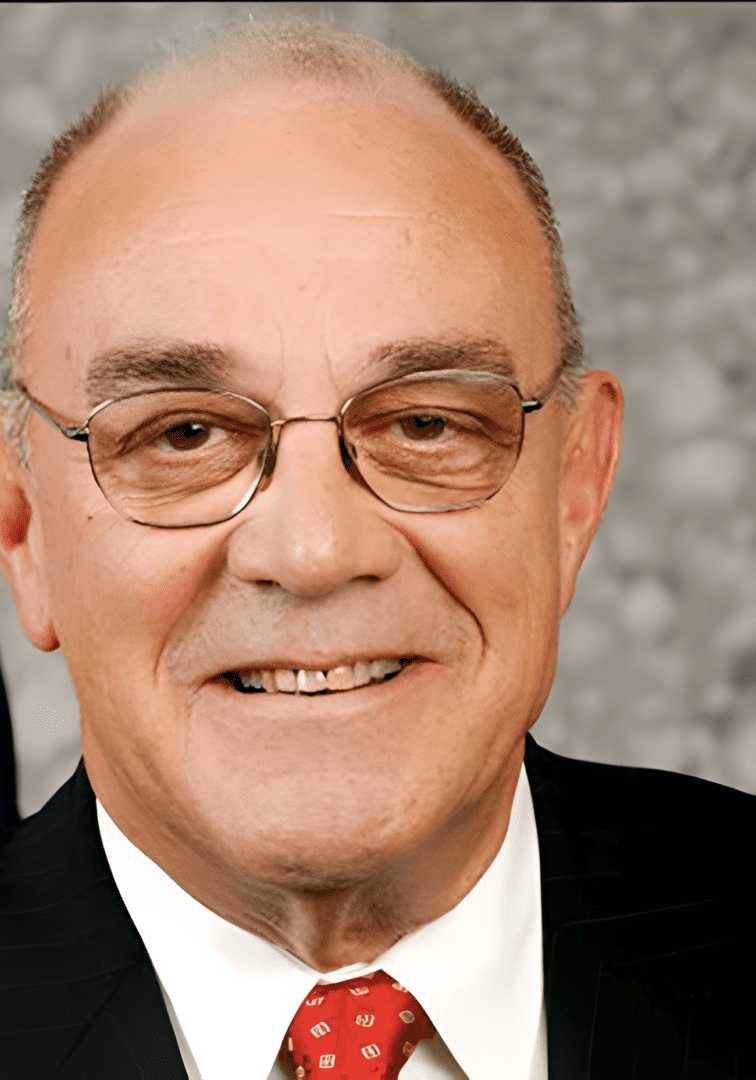
Mike Long (C-NY) Chairman of the New York Conservative Party
Michael R. Long, an esteemed figure in the realm of politics, has made significant contributions as Chairman of the New York Conservative Party. Born in Brooklyn, New York, Long developed a deep-rooted passion for conservative values and dedicated his career to advancing these principles.
Educated at local institutions, Long acquired a solid foundation in political science, which laid the groundwork for his future endeavors. He quickly rose through the ranks of the New York Conservative Party, eventually assuming the role of Chairman.
Long's role in the election victories of both President George W. Bush and President Donald Trump cannot be overstated. His tireless efforts in mobilizing grassroots support and galvanizing conservative voters played a crucial role in their electoral success. Long's strategic acumen and ability to unite like-minded individuals behind a common cause have earned him widespread recognition as a skilled political operator.
Beyond his achievements as Chairman, Long has been actively involved in shaping conservative policies and promoting the party's core principles. His unwavering commitment to limited government, individual liberty, and traditional values has made him a respected voice within the conservative movement.
With a distinguished career spanning decades, Michael R. Long's impact on the political landscape is undeniable. His leadership and dedication have solidified his position as a prominent figure in conservative politics, leaving a lasting legacy for future generations.
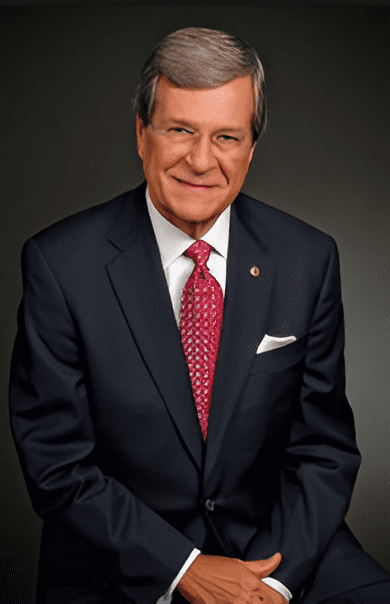
Senator Trent Lott (R-MS) Senate Majority Leader
Chester Trent Lott, a distinguished American politician, has had a long and impactful career in public service. Born in Grenada, Mississippi, in 1941, Lott's journey towards political leadership began at the University of Mississippi, where he obtained a degree in public administration.
Lott's notable achievements include serving as the Senate Majority Leader and Senate Minority Leader during his tenure as a U.S. Senator from Mississippi. His leadership skills and ability to forge bipartisan relationships played a crucial role in shaping legislative outcomes during his time in office. Additionally, Lott demonstrated a strong commitment to the Federal Home Loan Bank System, working diligently to support its mission of providing affordable housing finance.
Throughout his career, Lott remained steadfast in his dedication to constituents, advocating for their interests and working towards meaningful policy reforms. His accomplishments as a senator reflected his deep understanding of the issues facing Mississippi and the nation as a whole.
While his political career placed him in the national spotlight, Lott's personal integrity and commitment to public service remained at the forefront. His contributions to the advancement of his state and the nation are a testament to his unwavering dedication to the betterment of society and the pursuit of effective governance.
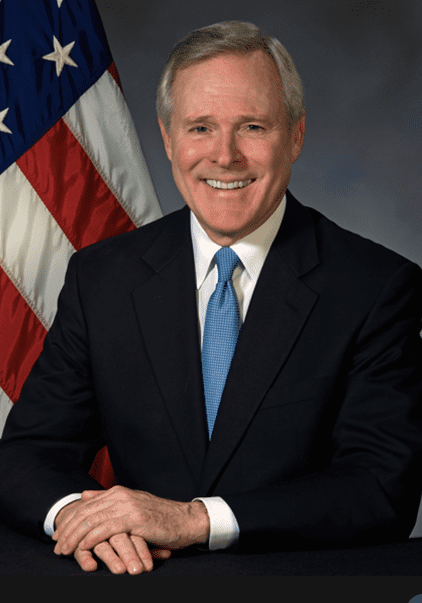
Ray Mabus (D-MS) 75th U.S. Secretary of the Navy
Raymond Edwin Mabus Jr., born in Starkville, Mississippi, has had an impressive career in public service. He obtained a Bachelor of Arts degree from the University of Mississippi and later earned a Juris Doctor from Harvard Law School.
Mabus commenced his political journey as the Mississippi State Auditor from 1984 to 1988, where he prioritized transparency and accountability in government operations. He then served as Governor of Mississippi from 1988 to 1992, focusing on educational and economic reforms. Mabus emphasized job creation, increased funding for education, and worked towards enhancing the state's infrastructure.
Following his governorship, Mabus assumed the role of United States Ambassador to Saudi Arabia from 1994 to 1996 under President Bill Clinton. During his tenure, he played a pivotal role in strengthening bilateral relations between the two nations and advancing American interests in the region.
From 2009 to 2017, Mabus served as the Secretary of the Navy under President Barack Obama. During his time in office, he implemented initiatives to enhance the capabilities, sustainability, and energy efficiency of the Navy and Marine Corps. Mabus spearheaded efforts to reduce dependency on fossil fuels, promote the use of renewable energy sources, and improve the overall readiness of naval forces.
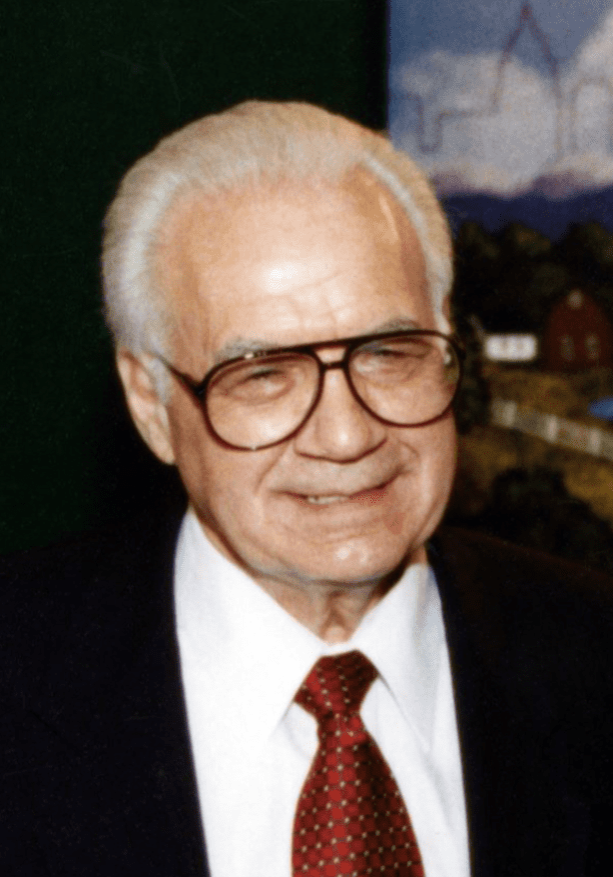
Congressman Guy Molinari (R-NY)
Gaetano Victor Molinari, a highly accomplished public servant, has made significant contributions to the United States during his remarkable career. Born in Staten Island, New York, Molinari's passion for public service was evident from an early age.
Molinari's impressive journey began with his service as a Member of the U.S. House of Representatives from New York. During his tenure, he effectively represented the interests of his constituents and played a pivotal role in shaping legislation that positively impacted the lives of Americans.
Molinari's legislative contributions to the Federal Home Loan Bank System exemplify his dedication to public service. With his expertise in finance and astute leadership, he championed initiatives that ensured the stability and accessibility of housing finance nationwide.
Molinari's personal background, coupled with his strong educational foundation, further enhanced his ability to serve the public effectively. Drawing from his deep understanding of the challenges faced by his constituents, he consistently worked towards finding practical solutions to address pressing issues.
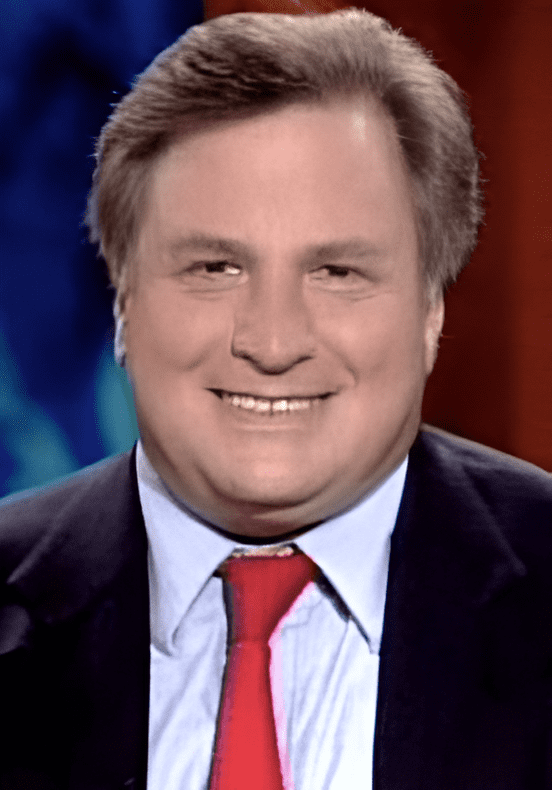
Dick Morris Pollster, Political & General Political Campaign Consultant
Richard Samuel Morris, a seasoned political strategist and campaign consultant, has made significant contributions to the field of politics throughout his career. Born in New York City, Morris developed a passion for politics at an early age and quickly established himself as a respected figure in the realm of campaign management.
With a solid educational background, Morris honed his skills at Columbia University, where he obtained his degree in political science. Armed with a deep understanding of the political landscape, he embarked on a remarkable journey of helping numerous candidates secure electoral victories.
Notably, Morris played a pivotal role in the successful campaigns of Mississippi Governor Bill Allain and President Bill Clinton. His strategic guidance and innovative approach proved instrumental in their election triumphs. Morris's ability to analyze public sentiment, devise effective messaging, and implement tactical strategies earned him a reputation as a shrewd and astute consultant.
Beyond his notable achievements as a campaign strategist, Morris has also authored several influential books on politics and policy. His insights and analysis have garnered widespread attention and provided valuable guidance to politicians and political enthusiasts alike.
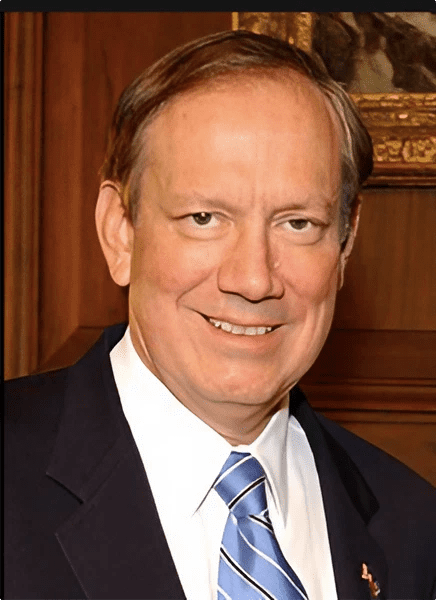
Governor George Pataki (R-NY)
George Elmer Pataki, a renowned American politician, served as the 53rd Governor of New York from 1995 to 2006. Born on June 24, 1945, in Peekskill, New York, Pataki exhibited a remarkable passion for public service early on. After earning his law degree from Columbia Law School, he embarked on a journey that would ultimately shape New York's political landscape.
During his three terms in office, Governor Pataki spearheaded notable achievements. His administration focused on revitalizing the state's economy, fostering job growth, and reducing taxes, leading to unprecedented prosperity. Pataki prioritized environmental conservation, launching initiatives to protect New York's natural resources and combat climate change. He displayed commendable leadership in the aftermath of the September 11, 2001 terrorist attacks, working tirelessly to rebuild and restore hope in the face of adversity.
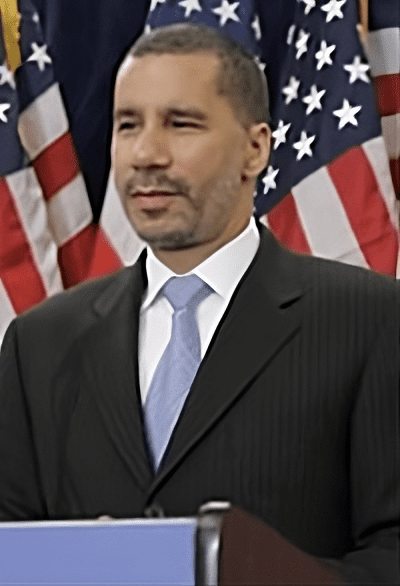
Governor David Paterson (D-NY)
David Alexander Paterson, born on May 20, 1954, in Brooklyn, New York, is a notable figure in American politics, particularly as the former Governor of New York. With a strong commitment to public service, Paterson made significant contributions during his time in office.
Serving as the 55th Governor of New York from 2008 to 2010, Paterson faced numerous challenges during his tenure. Despite the economic downturn, he demonstrated strong leadership skills and implemented measures to address the state's fiscal crisis. His efforts to stabilize the economy and promote fiscal responsibility were commendable.
Prior to his governorship, Paterson served as Lieutenant Governor of New York, where he focused on issues related to healthcare, education, and civil rights. He championed initiatives to expand access to quality healthcare and advocated for educational reforms to improve outcomes for New York's students.
Paterson's personal background includes his education at Columbia University, where he earned a degree in History. His upbringing in New York City provided him with a unique perspective and understanding of the challenges faced by its residents.
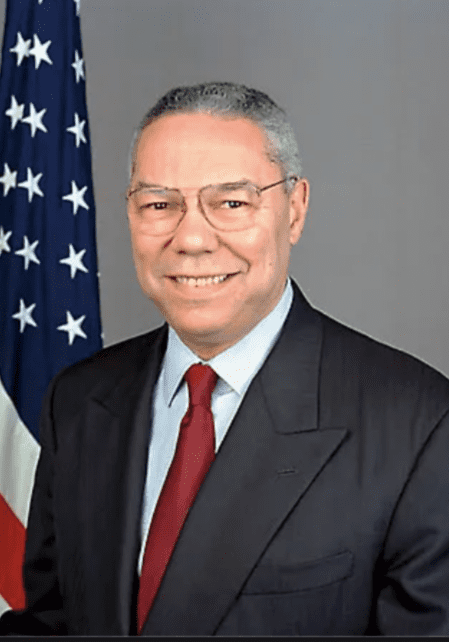
General Colin Powell (R-NY) 65th U.S. Secretary of State
Colin Powell, a highly respected American statesman, has made lasting contributions to the United States in the realms of diplomacy, military leadership, and national security. Born on April 5, 1937, in Harlem, New York, Powell's remarkable career spans over four decades.
After completing his education at the City College of New York, Powell joined the U.S. Army and quickly rose through the ranks. Serving two tours in Vietnam and earning numerous military honors, Powell became the first African American to hold the position of Chairman of the Joint Chiefs of Staff, serving from 1989 to 1993. His leadership during the Gulf War demonstrated his exceptional strategic acumen and earned him widespread recognition.
In 2001, President George W. Bush appointed Powell as the 65th United States Secretary of State. As Secretary of State, Powell played a vital role in shaping American foreign policy during a critical period. He successfully built alliances and coalitions, particularly during the early stages of the War on Terror. Powell's presentation to the United Nations in 2003, outlining the case for military action against Iraq, remains a significant part of his tenure, even though subsequent events have questioned the accuracy of the intelligence presented.
Prior to his tenure as Secretary of State, Powell served as the United States National Security Adviser from 1987 to 1989, advising President Ronald Reagan on matters of national security and foreign policy. His expertise and pragmatic approach to international relations significantly influenced the Reagan administration's policies during the final years of the Cold War.
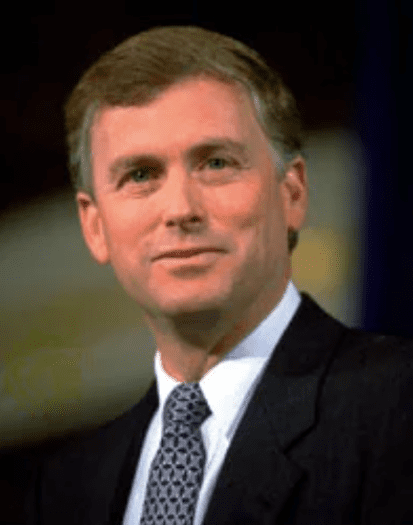
Vice President Dan Quayle (R-IN)
Dan Quayle, an esteemed American politician, has made significant contributions to the United States during his tenure as Vice President and as a Senator from Indiana. Born on February 4, 1947, in Indianapolis, Quayle embarked on a successful political career that spanned over three decades.
Quayle served as the 44th Vice President of the United States from 1989 to 1993, under President George H. W. Bush. During his time in office, Quayle played a pivotal role in shaping domestic and foreign policies. He was particularly active in promoting education reform and served as the chairman of the National Space Council, advocating for the advancement of American space exploration.
Prior to his vice presidency, Quayle served as a United States Senator from Indiana from 1981 to 1989. As a senator, he championed conservative values and was known for his work on defense and national security issues. Quayle's service on committees such as Armed Services and Budget demonstrated his dedication to ensuring the nation's security and fiscal responsibility.
Throughout his career, Quayle's accomplishments as Vice President and Senator from Indiana have left a lasting impact on the nation. His commitment to public service and conservative values has earned him respect from colleagues and constituents alike.
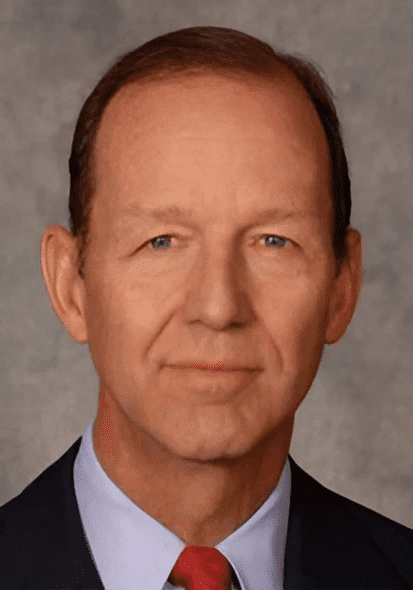
Theodore Roosevelt IV American Investment Banker, Conservationist, Former Navy SEAL
Theodore Roosevelt IV, an accomplished individual with a diverse range of experiences, has left an indelible mark in various fields. Born in New York City, Roosevelt's educational journey led him to Harvard University, where he earned a degree in economics.
Roosevelt spent several successful years as an investment banker, notably at Lehman Brothers. His expertise in finance allowed him to excel in the intricate world of investment banking, contributing to the success of the firm and establishing himself as a respected figure in the industry.
Beyond his financial endeavors, Roosevelt is also recognized as a committed conservationist. Inspired by his great-grandfather's legacy, he has actively advocated for the preservation of natural resources, working towards sustainable solutions and raising awareness about environmental issues.
Moreover, Roosevelt's dedication to public service extended to his time as a Navy SEAL, showcasing his bravery and commitment to protecting the nation. His military service exemplified his courage and unwavering dedication to duty.
Throughout his life, Roosevelt has demonstrated a profound commitment to excellence and a passion for making a positive impact. With his notable tenure at Lehman Brothers, Roosevelt solidified his reputation in the financial sector, while his contributions as a conservationist and Navy SEAL showcased his multifaceted character and his drive to contribute to the betterment of society.
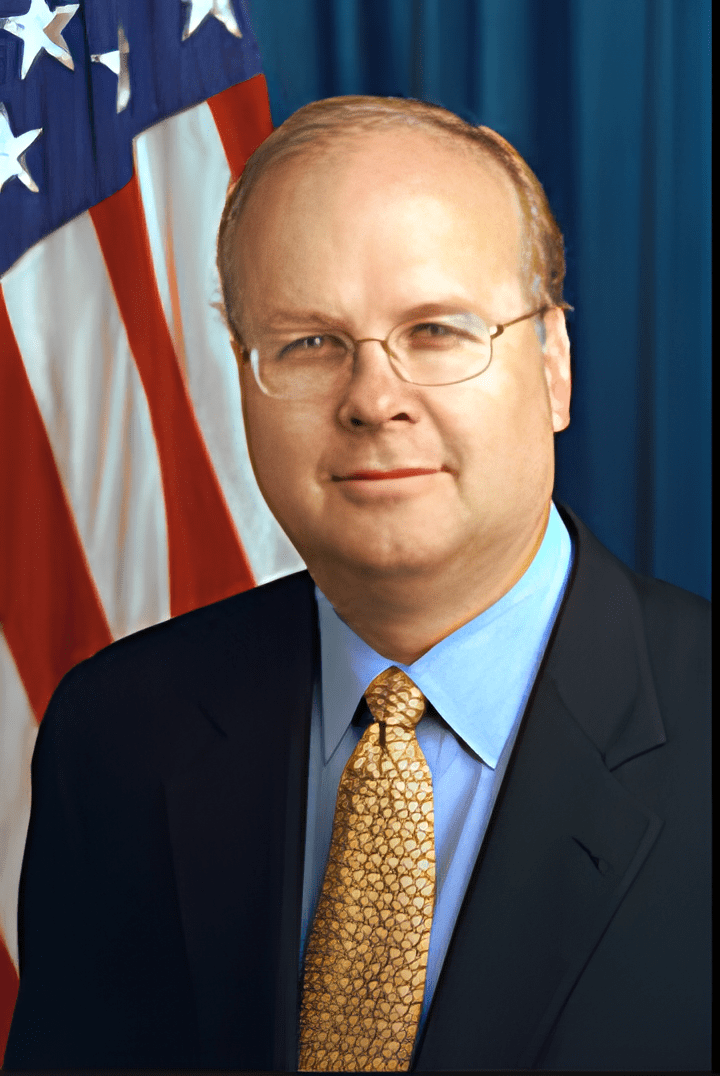
Karl Rove (R-NV) White House Deputy Chief of Staff
Karl Christian Rove is a highly accomplished political strategist and public servant who has played a significant role in shaping American politics. Born and raised in Sparks, Nevada, Rove's personal background and education laid the foundation for his successful career in government and policy.
Rove's notable achievements include serving as the White House Deputy Chief of Staff and Senior Advisor to the President. In these roles, he demonstrated exceptional political acumen and strategic thinking, advising on key policy decisions and helping to shape the direction of the nation. Rove's contributions to the White House were marked by his ability to navigate complex political landscapes and provide valuable insights to the President.
Additionally, Rove made substantial contributions to the Federal Home Loan Bank System during his tenure in the George W. Bush administration. His deep understanding of economic policy and commitment to promoting affordable housing played a crucial role in advancing the goals of the system. Rove's efforts were instrumental in ensuring the stability and effectiveness of the Federal Home Loan Bank System, which provides vital support to financial institutions and fosters economic growth.
Throughout his career, Rove has exhibited a keen intellect and an unwavering dedication to public service. His ability to analyze political landscapes, formulate effective strategies, and provide sound advice has earned him respect and admiration within political circles.
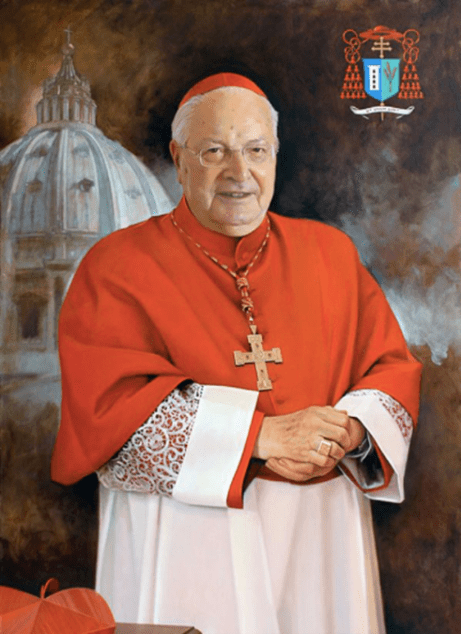
Cardinal Angelo Sodano Secretary of State of the Holy See (“The Vatican”)
Cardinal Angelo Sodano is a distinguished figure in the Vatican, holding the esteemed position of Secretary of State of the Holy See. As the second-highest-ranking official after the Pope, he has played a pivotal role in shaping the policies and operations of the Vatican.
One of Cardinal Sodano's significant responsibilities was overseeing the election of two Popes, highlighting his exceptional leadership and expertise within the Vatican. He presided over two papal conclaves that resulted in the selection of Pope Benedict XVI and Pope Francis. These papal elections marked crucial moments in the Catholic Church's history and showcased Cardinal Sodano's ability to guide and navigate the intricate process of choosing a new Pope.
In addition to his role in papal elections, Cardinal Sodano has made notable contributions to bolstering U.S.-Vatican relations at the United Nations. His work on the adoption and implementation of a worldwide United Nations resolution focused on "Preventing, Combating, and Eradicating the Illicit Trade in Small Arms and Light Weapons in All Its Aspects" stands as a testament to his dedication to promoting peace and security on a global scale. Through his efforts, he has demonstrated the Vatican's commitment to addressing the challenges posed by the illicit trade of small arms and light weapons.
Cardinal Sodano's dedication to strengthening U.S.-Vatican relations has been commendable. His diplomatic skills and unwavering commitment have fostered dialogue and collaboration between the Holy See and the United States on various matters of mutual concern. His work has been instrumental in deepening understanding and cooperation between these two esteemed entities.
Overall, Cardinal Angelo Sodano's professional biography reflects his exceptional leadership, expertise, and commitment to diplomacy. From serving as the Vatican Secretary of State; to overseeing two papal conclaves; to his contributions in bolstering U.S.-Vatican relations at the United Nations, he has left an indelible mark on the Catholic Church and the international community. His tireless efforts in promoting peace, justice, and collaboration have solidified his reputation as a respected and influential figure within the Vatican and beyond.

President Donald Trump (R-NY)
Donald John Trump was born on June 14, 1946, in Queens, New York City. He is an American businessman, television personality, and politician who has left an indelible mark on both the business and political landscapes.
In the business realm, Trump's accomplishments are significant and far-reaching. He began his career working for his father's real estate company, Elizabeth Trump & Son, where he honed his skills in the industry. With an astute business sense and a strong drive for success, Trump took over the company in 1971, renaming it The Trump Organization. Under his leadership, the organization expanded its operations to encompass diverse ventures, including residential and commercial properties, hotels, casinos, and golf courses. Trump's branding expertise and entrepreneurial spirit propelled him to great heights, establishing him as a prominent figure in the global real estate market.
Trump's entry into politics came in 2015 when he announced his candidacy for the presidency of the United States. Running as a Republican, his unconventional campaign style and direct rhetoric resonated with a sizeable portion of the American electorate. In 2016, he emerged victorious in the presidential election, becoming the 45th President of the United States.
As President, Trump achieved several noteworthy domestic accomplishments. He spearheaded significant tax reform, enacting the Tax Cuts and Jobs Act of 2017, which aimed to stimulate economic growth and create jobs. Trump also prioritized deregulation efforts, aiming to reduce bureaucratic burdens on businesses and spur innovation. Additionally, he focused on criminal justice reform, signing the bipartisan First Step Act into law, which aimed to address sentencing disparities and promote rehabilitation.
On the foreign policy front, Trump made significant strides during his presidency. He pursued a more assertive approach to international trade, renegotiating the North American Free Trade Agreement (NAFTA) and replacing it with the United States-Mexico-Canada Agreement (USMCA). He also engaged in high-stakes negotiations with other countries, particularly China, aiming to address trade imbalances and protect American industries.
Trump's administration witnessed historic diplomatic breakthroughs as well. Under his leadership, the United States brokered the Abraham Accords, which led to the normalization of relations between Israel and several Arab nations. These agreements represented a significant step towards peace and stability in the Middle East.
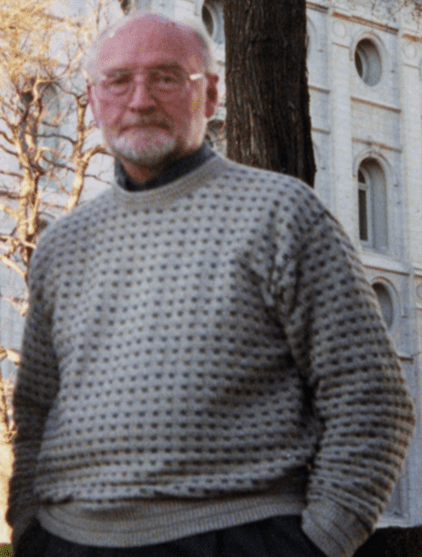
M. Danny Wall
Chairman of the Federal Housing Finance Agency
& Director U.S. Office of Thrift Supervision
M. Danny Wall is a highly accomplished finance and housing expert, renowned for his exceptional contributions throughout his extensive career. Born and raised in a modest setting, Wall's educational journey laid a solid foundation for his noteworthy achievements.
Wall's remarkable career includes his tenure as Chairman of the Federal Housing Finance Agency (FHFA). In this pivotal role, he displayed exceptional leadership and decision-making skills, overseeing the efficient management of the Federal Home Loan Bank System. Wall's expertise ensured regulatory compliance and optimal functionality of this critical system.
Additionally, Wall played a crucial role in overseeing two vital institutions, namely Freddie Mac and Fannie Mae. Freddie Mac, the Federal Home Loan Mortgage Corporation, and Fannie Mae, the Federal National Mortgage Association, are integral components of the American housing market. Wall's astute oversight of these institutions showcased his deep understanding of the complexities within the housing finance sector.
Prior to his role at the FHFA, Wall served as the Director of the Office of Thrift Supervision (OTS). In this capacity, he demonstrated his commitment to financial stability by effectively supervising thrift institutions.
Wall's illustrious career also includes serving under several U.S. presidents, providing invaluable insights and expertise. His personal background, combined with his education at reputable institutions, equipped him with a solid understanding of finance and economics.
Throughout his career, Wall's accomplishments have earned him widespread recognition and respect within the finance and housing sectors. His unwavering dedication, coupled with his ability to navigate complex challenges, has established him as a highly respected figure in his field.
In conclusion, M. Danny Wall's significant achievements as Chairman of the Federal Housing Finance Agency, his role in managing the Federal Home Loan Bank System, and his oversight of Freddie Mac and Fannie Mae, underscore his exceptional expertise. Additionally, his directorship of the Office of Thrift Supervision highlights his commitment to financial stability. Wall's personal background and educational accomplishments further reinforce his standing as a highly respected professional within the finance and housing sectors.
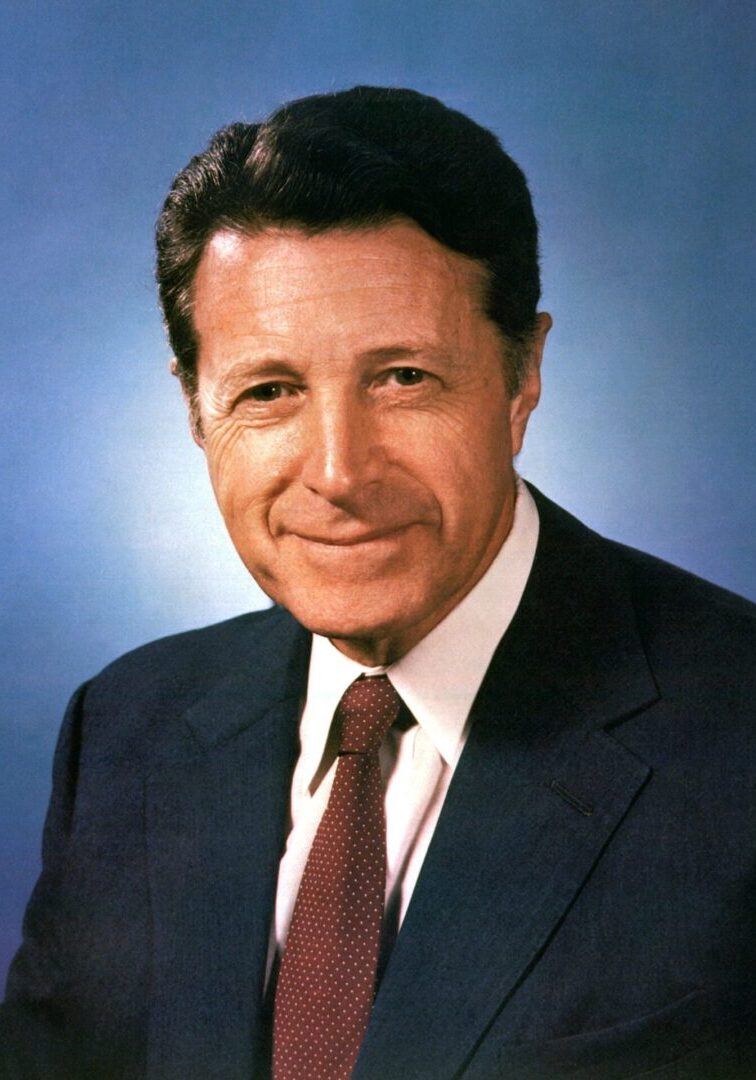
Casper Weinberger (R-CA) 15th U.S. Secretary of Defense
Casper Weinberger was a distinguished American statesman who served in various high-level government positions, leaving an indelible mark on the nation's history. Born on August 18, 1917, in San Francisco, California, Weinberger's career spanned several decades and encompassed significant roles in multiple presidential administrations.
Weinberger's most notable tenure was as the United States Secretary of Defense, a position he held from 1981 to 1987 under President Ronald Reagan. As Secretary of Defense, Weinberger played a vital role in shaping American defense policy during the Cold War era. He was a strong advocate for a robust defense budget and worked tirelessly to modernize and strengthen the U.S. military. Weinberger championed the Strategic Defense Initiative (SDI), a proposed missile defense system, which contributed to the eventual end of the Cold War.
Prior to his role as Secretary of Defense, Weinberger served as the United States Secretary of Health, Education, and Welfare from 1973 to 1975 under President Richard Nixon. In this capacity, he oversaw various health and social welfare programs, including Medicare and Medicaid. Weinberger's commitment to improving the nation's healthcare and welfare systems left a lasting impact on millions of Americans.
Weinberger's extensive government service also included a stint as the Director of the Office of Management and Budget (OMB) from 1972 to 1973, where he played a crucial role in managing the federal budget and formulating fiscal policy. His astute financial acumen and commitment to fiscal responsibility earned him widespread respect.
Before his tenure in the OMB, Weinberger served as the Chairman of the Federal Trade Commission (FTC) from 1970 to 1972. As Chairman, he worked diligently to protect consumer interests and promote fair trade practices, displaying his dedication to upholding the principles of free and fair markets.
Throughout his career, Casper Weinberger served under multiple presidents, including Richard Nixon, Gerald Ford, and Ronald Reagan. His ability to navigate the intricacies of political landscapes and provide unwavering leadership made him a trusted advisor and a highly respected figure in Washington, D.C.
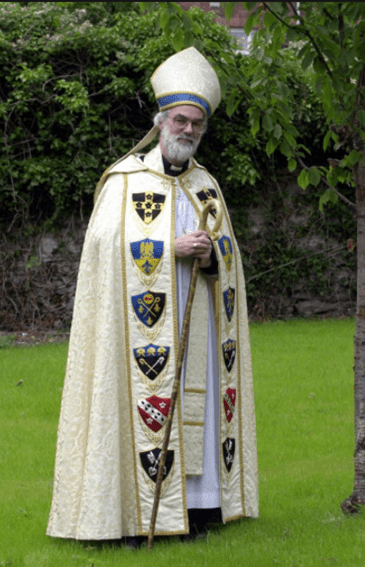
The Right Reverend & Right Honorable Rowan Williams Archbishop of Canterbury and Primate of All England
The Right Reverend & Honorable Rowan Douglas Williams, Baron Williams of Oystermouth, an eminent figure in the Anglican Church, served as the 104th Archbishop of Canterbury from 2002 to 2012. Born in Swansea, Wales, in 1950, Williams demonstrated intellectual prowess from an early age. He pursued his education at Cambridge University, where he excelled in theology and philosophy, earning several degrees.
Williams' tenure as Archbishop was marked by numerous accomplishments. Notably, he officiated at the historic wedding of Prince William and Catherine Middleton in 2011, a moment that captured global attention. Throughout his time as Archbishop, Williams fulfilled his royal duties with grace and dedication. His involvement with the British royal family extended beyond ceremonial events, as he provided spiritual guidance and support during significant occasions.
Beyond his ecclesiastical role, Williams is also an accomplished scholar and author, known for his insightful writings on theology and philosophy. He has contributed significantly to interfaith dialogue, emphasizing the importance of understanding and respect among different religious traditions.
Throughout his life and career, Rowan Williams has exemplified a deep commitment to his faith and a profound understanding of the complexities of the modern world. His intellectual brilliance, compassionate leadership, and unwavering dedication to his role as Archbishop of Canterbury have left an indelible mark on the Anglican Church and the wider community.
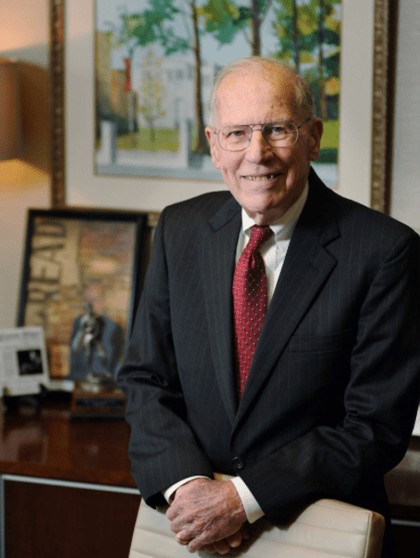
Governor William F. Winter (D-MS) Chancellor of the University of Mississippi (“Ole Miss”)
William Forrest Winter is a highly accomplished individual who has made significant contributions to Mississippi politics and education throughout his illustrious career. Born in Grenada, Mississippi, Winter's personal background laid the foundation for his lifelong dedication to public service.
Winter's remarkable political career includes serving as the Governor of Mississippi, where his exceptional leadership skills and unwavering commitment to progress were evident. As governor, Winter implemented groundbreaking reforms in education, which transformed the state's educational landscape. His tireless efforts to improve the quality of education in Mississippi earned him widespread recognition and respect.
Prior to his governorship, Winter served as the Lieutenant Governor of Mississippi, demonstrating his ability to navigate complex political landscapes and effectively represent the interests of the state. He also held the position of Mississippi State Treasurer, where his financial acumen and prudent management greatly benefited the state's fiscal affairs.
Beyond his political achievements, Winter's commitment to education extended to his role as Chancellor of the University of Mississippi. In this capacity, he played a pivotal role in fostering academic excellence and ensuring the institution's growth and development.
Winter's impact on Mississippi politics cannot be overstated. He championed racial reconciliation and worked tirelessly to bridge the gap between different communities within the state. His inclusive approach and dedication to equality helped shape a more united and cohesive Mississippi.
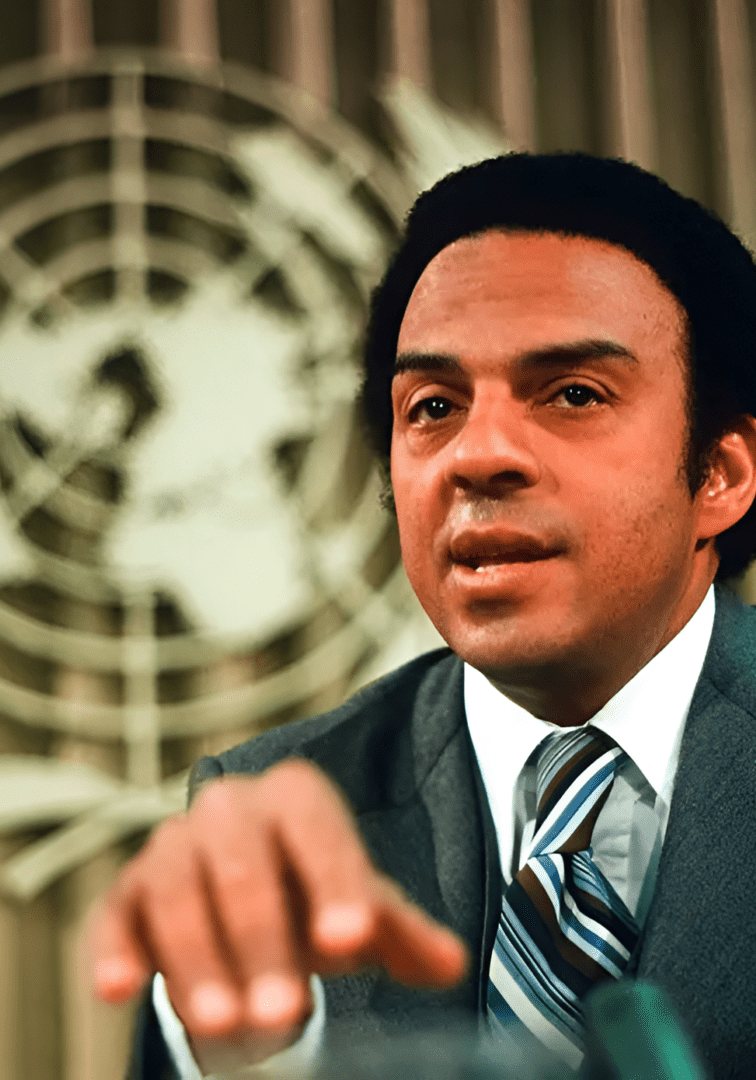
Andrew Young (D-GA) US Ambassador to the United Nations & former Mayor of Atlanta
Andrew Young is a prominent figure in American politics, known for his remarkable achievements and contributions as both the Mayor of Atlanta and as a U.S Ambassador to the United Nations. Born on March 12, 1932, in New Orleans, Young began his career as a civil rights activist, working closely with Martin Luther King Jr. during the 1960s.
In 1981, Young became the first African American Mayor of Atlanta, serving two terms and leaving a lasting impact on the city's growth and development. He focused on economic expansion, infrastructure improvements, and promoting Atlanta as a global city.
Young's diplomatic skills led to his appointment as the U.S Ambassador to the United Nations from 1977 to 1979. During his tenure, he played a pivotal role in addressing global issues, advocating for human rights, and fostering international cooperation. Young's efforts helped strengthen America's position on the world stage.
Throughout his career, Young has been recognized for his unwavering commitment to civil rights, social justice, and equality. His leadership and contributions to
American politics have left an indelible mark, inspiring future generations to fight for a more inclusive society.
